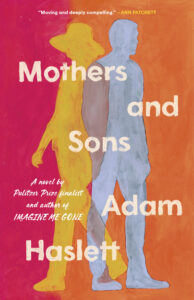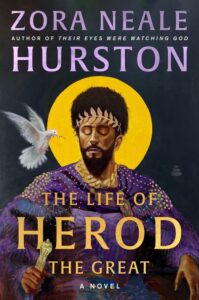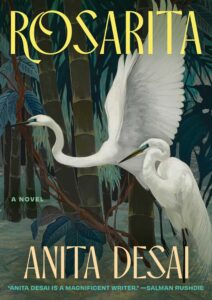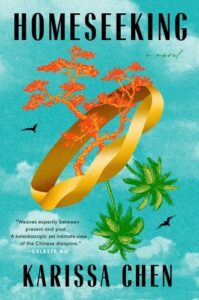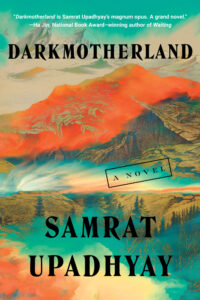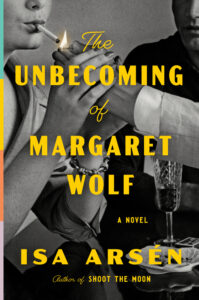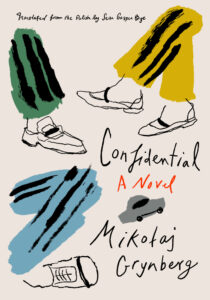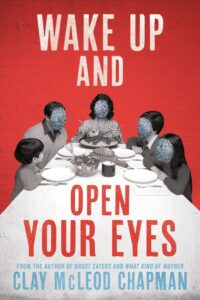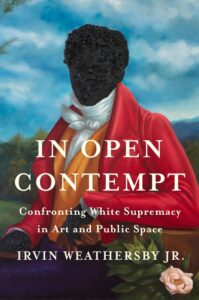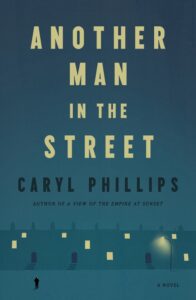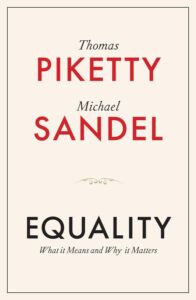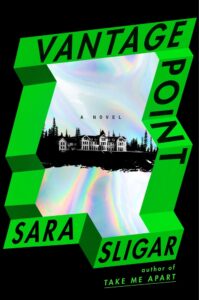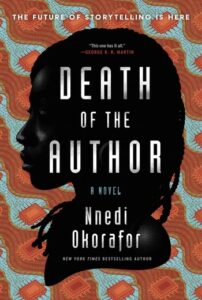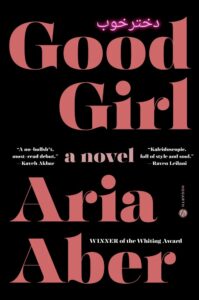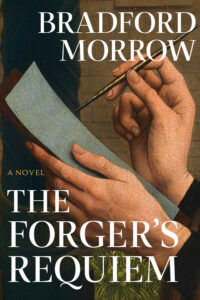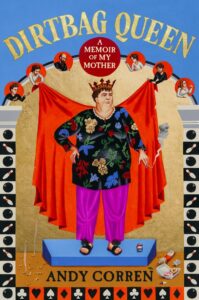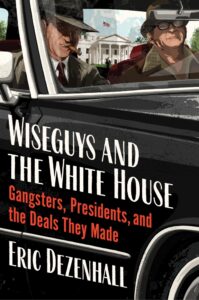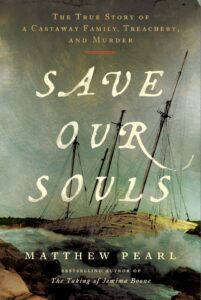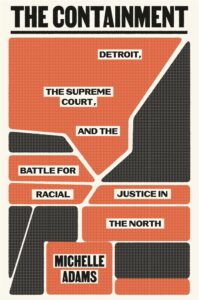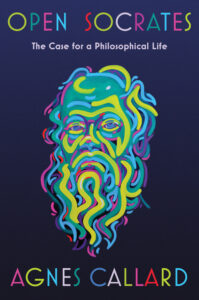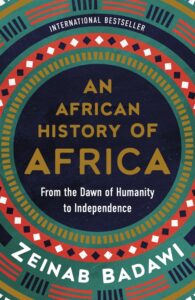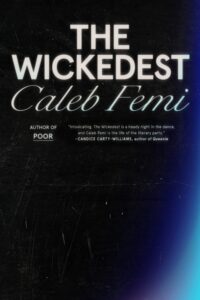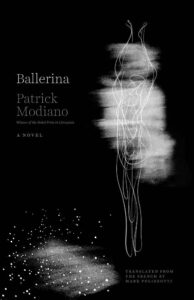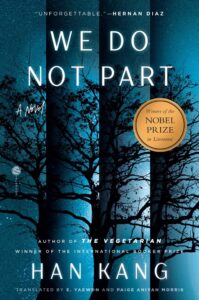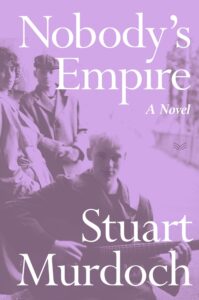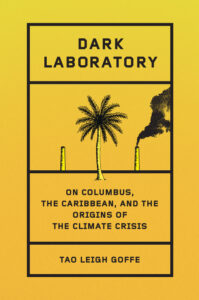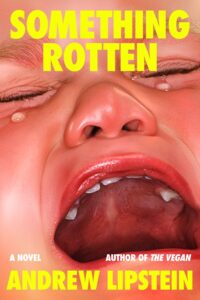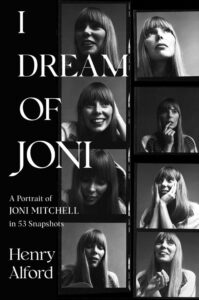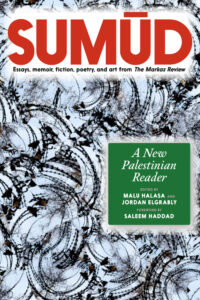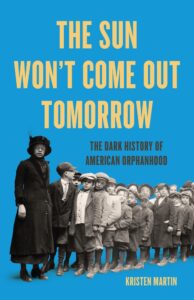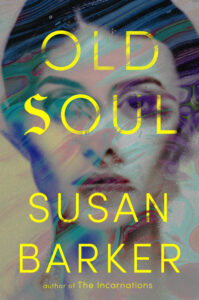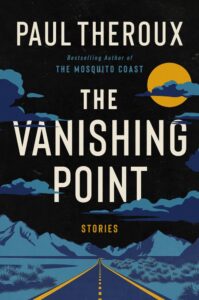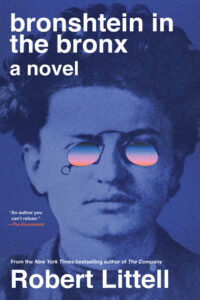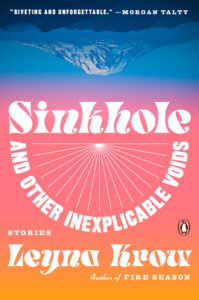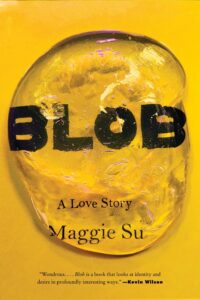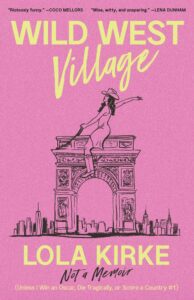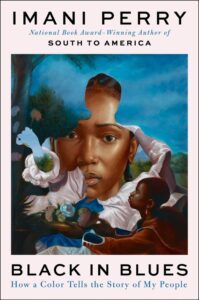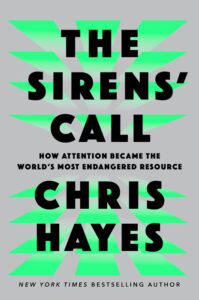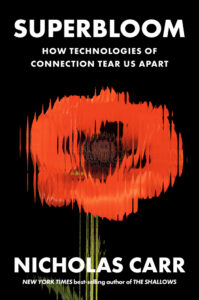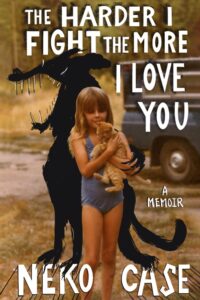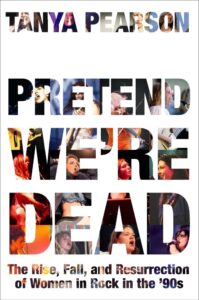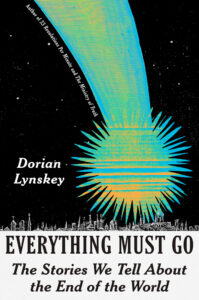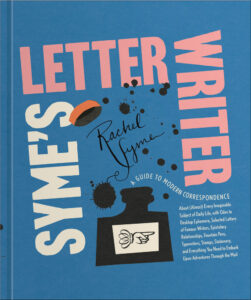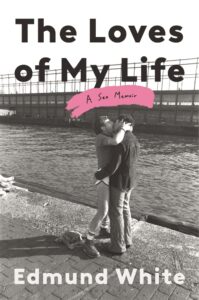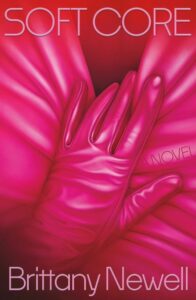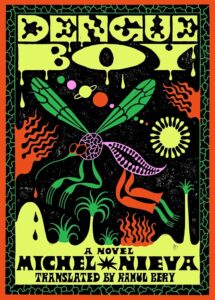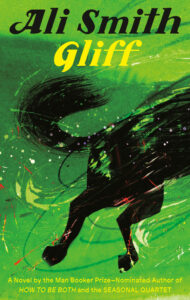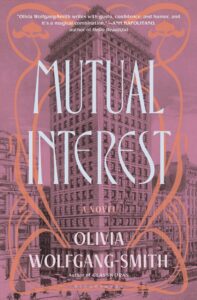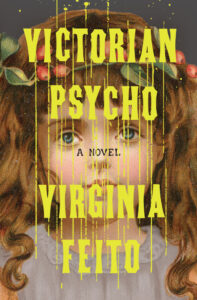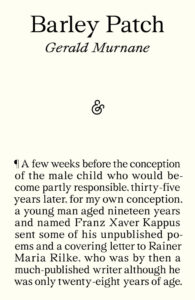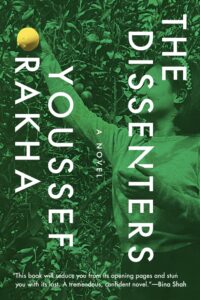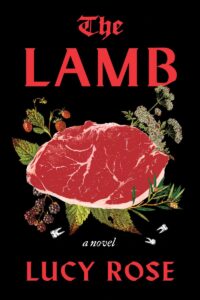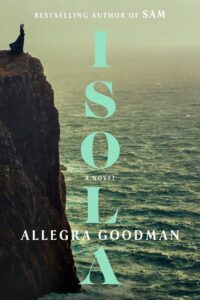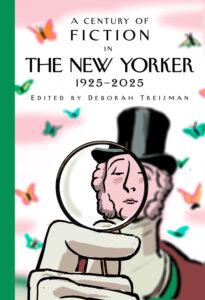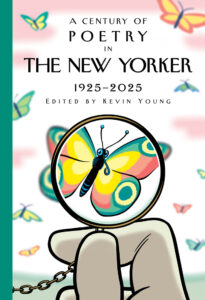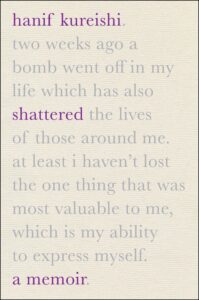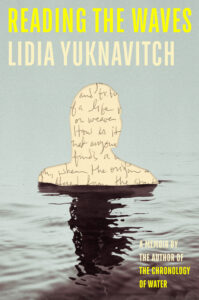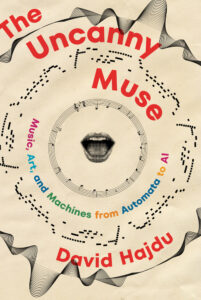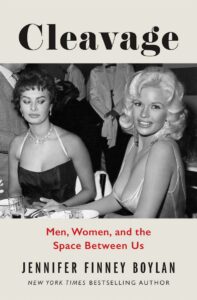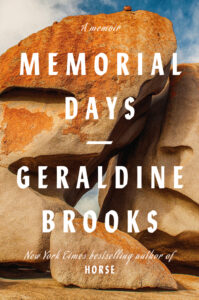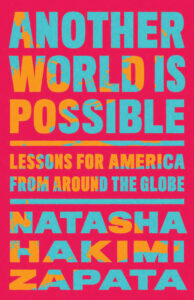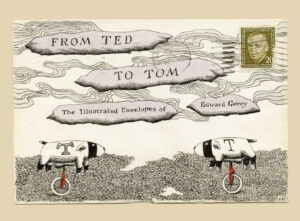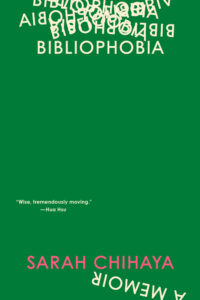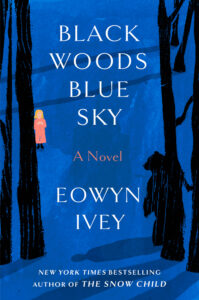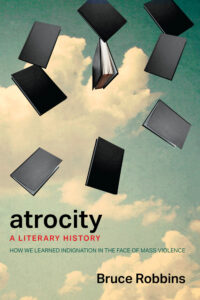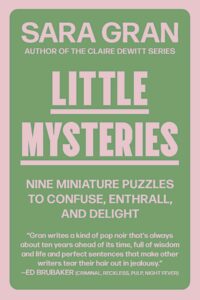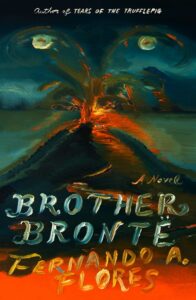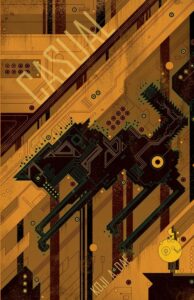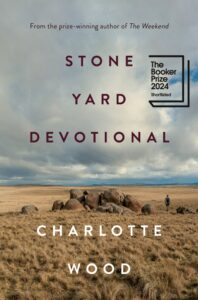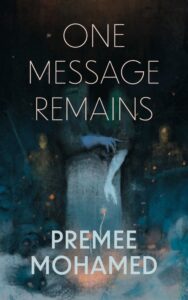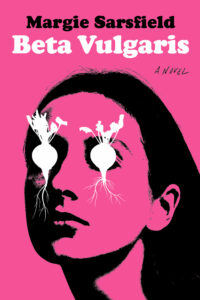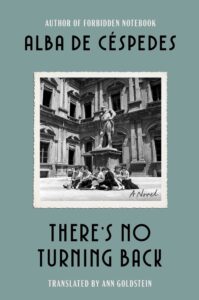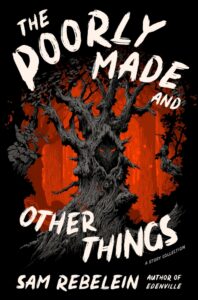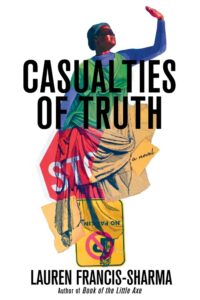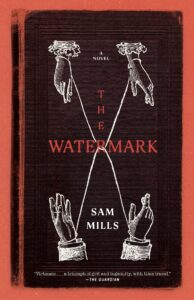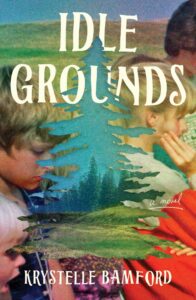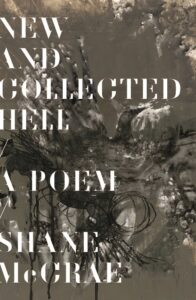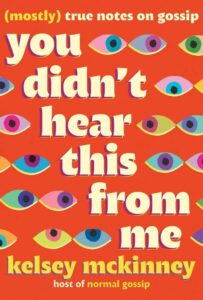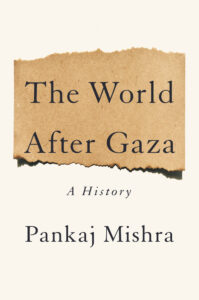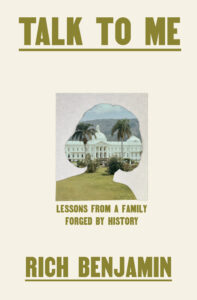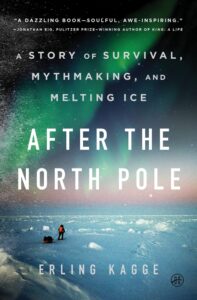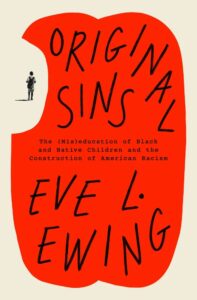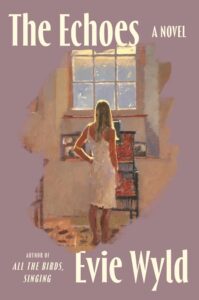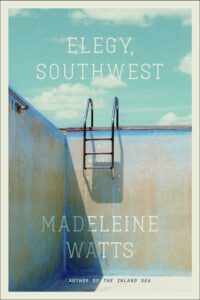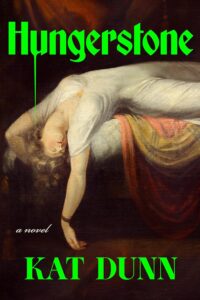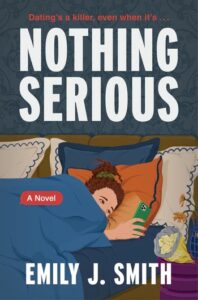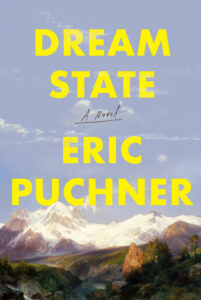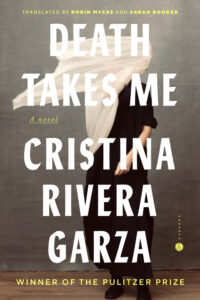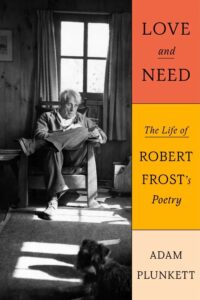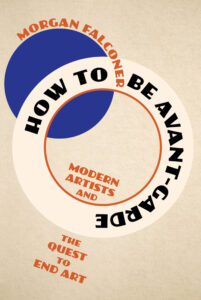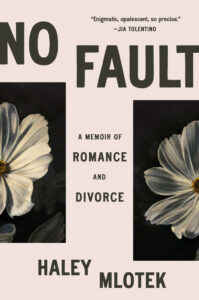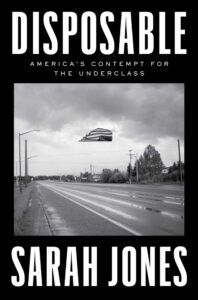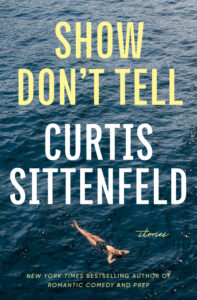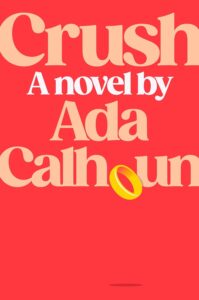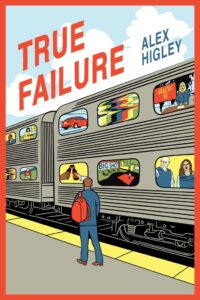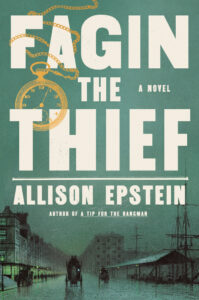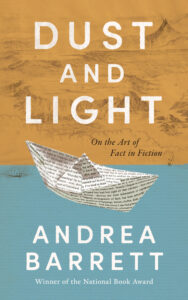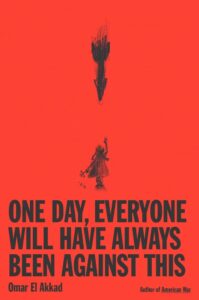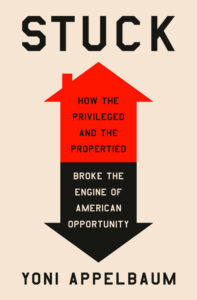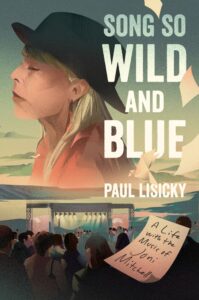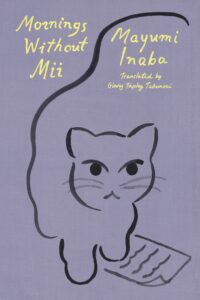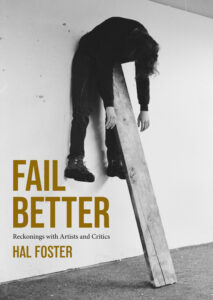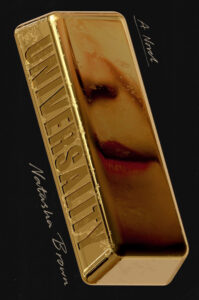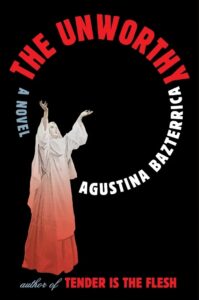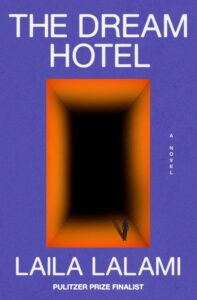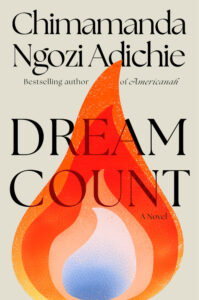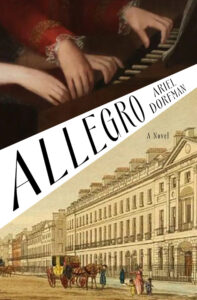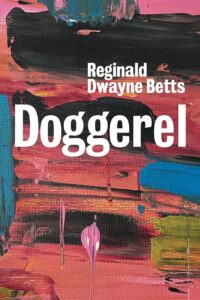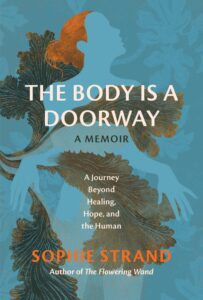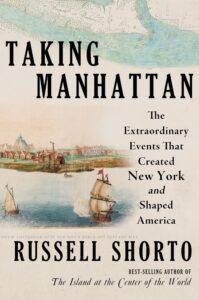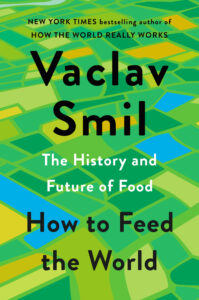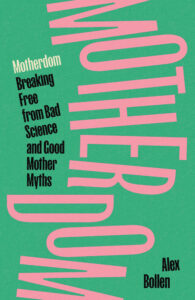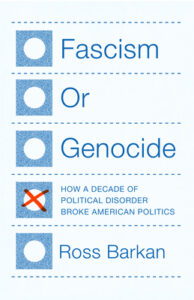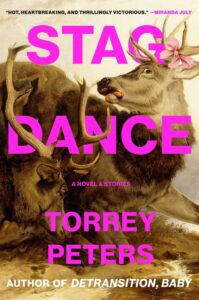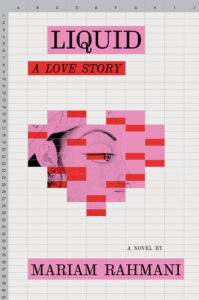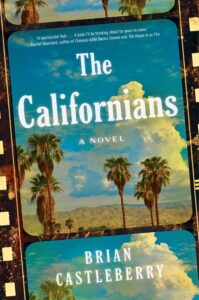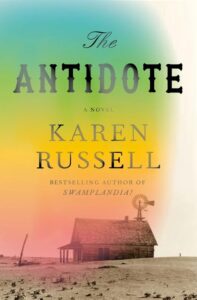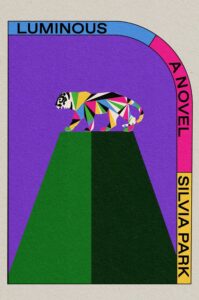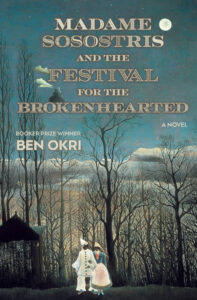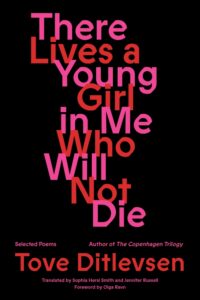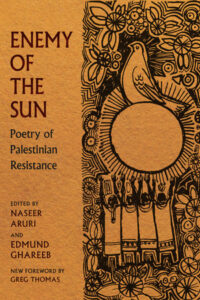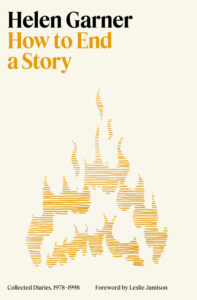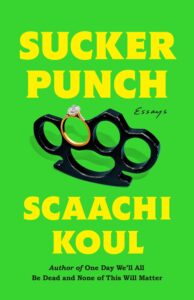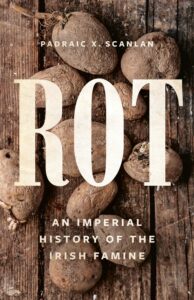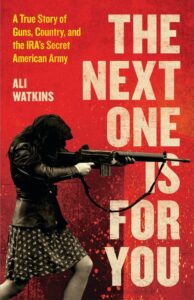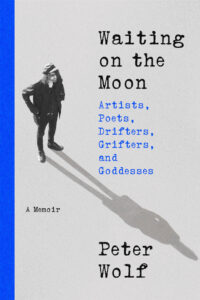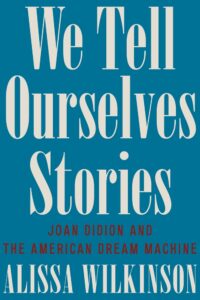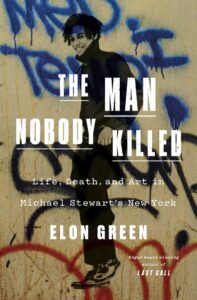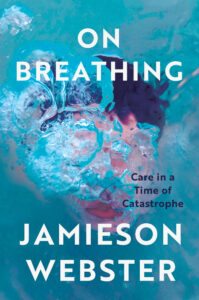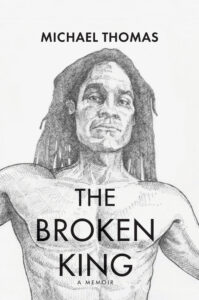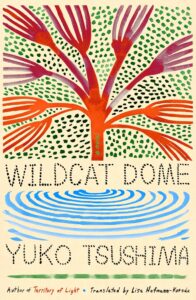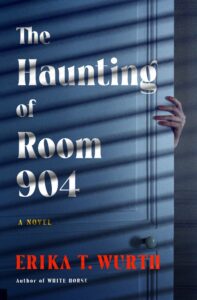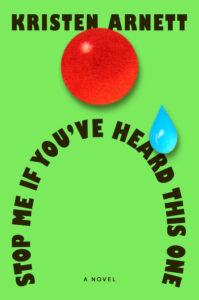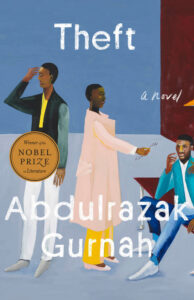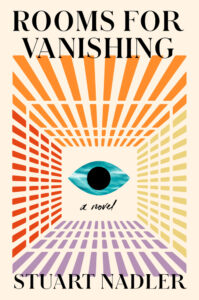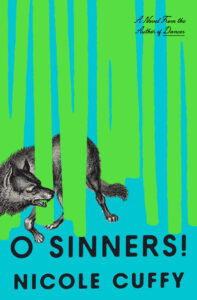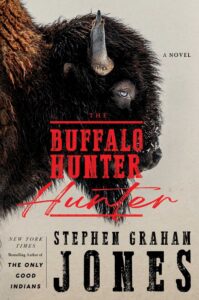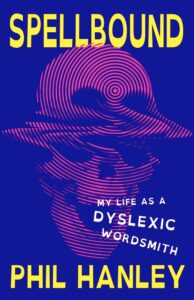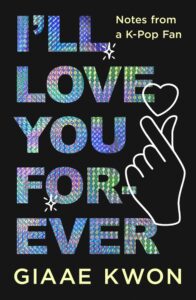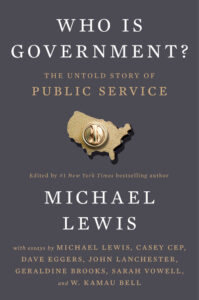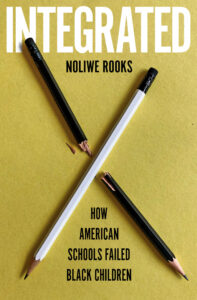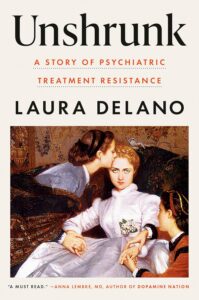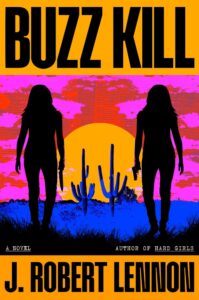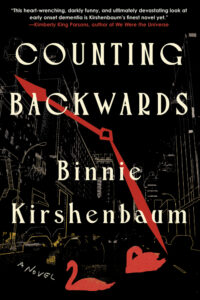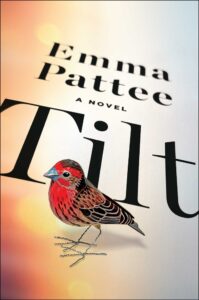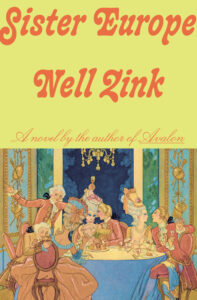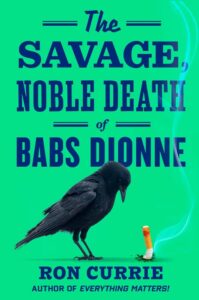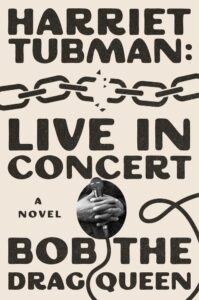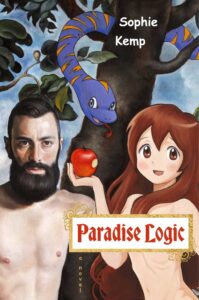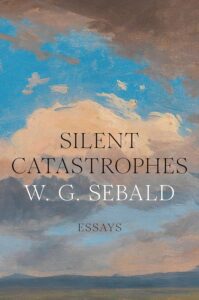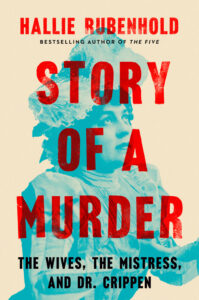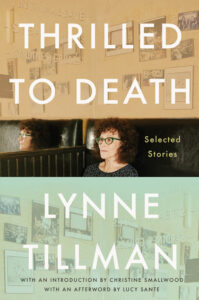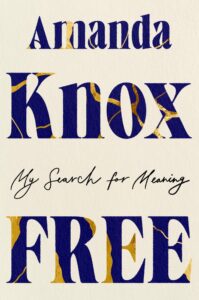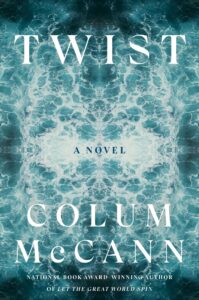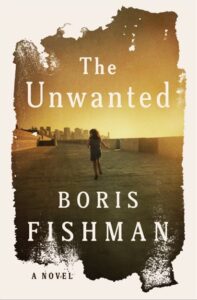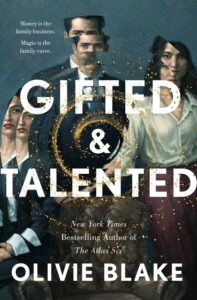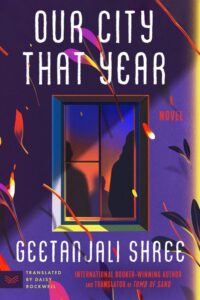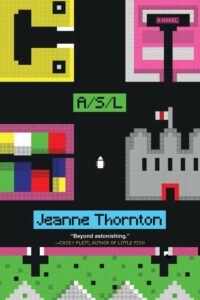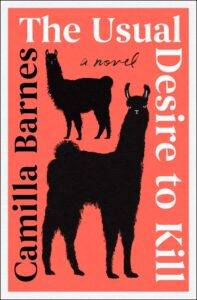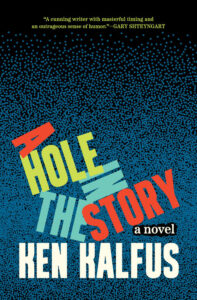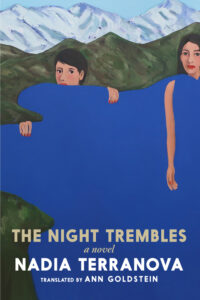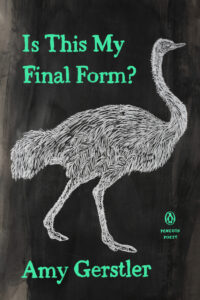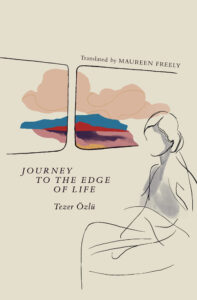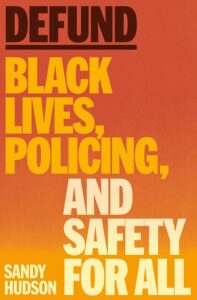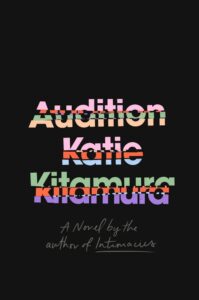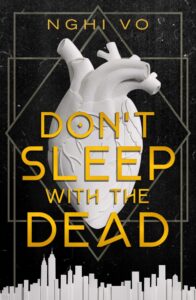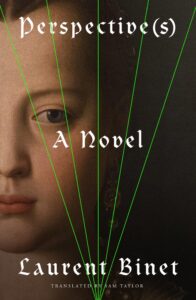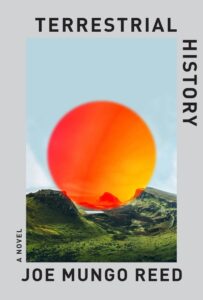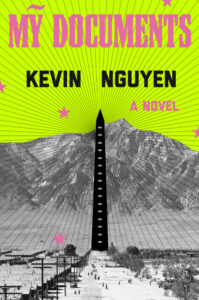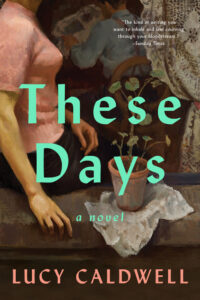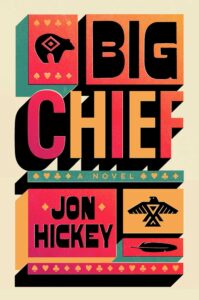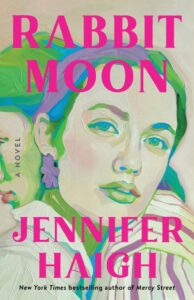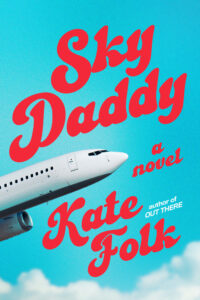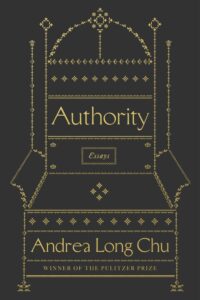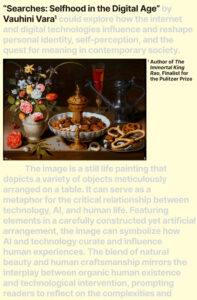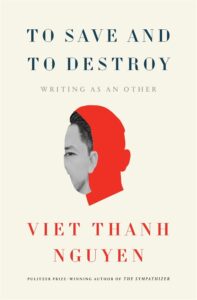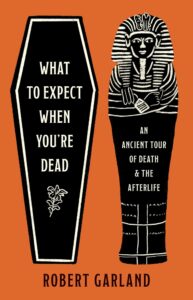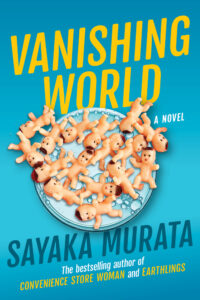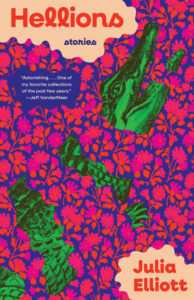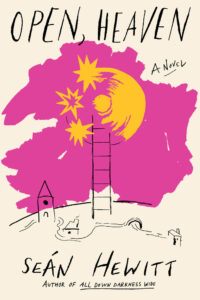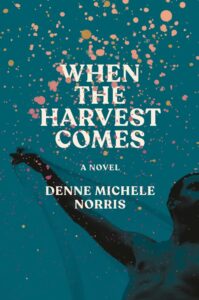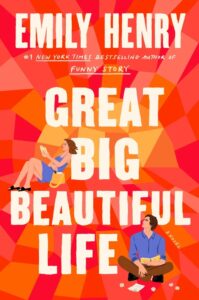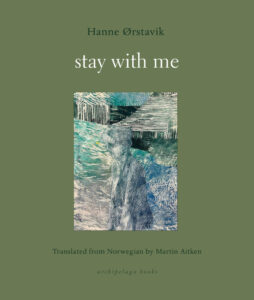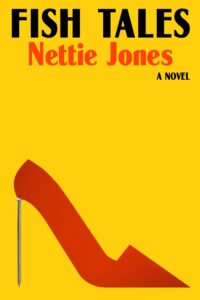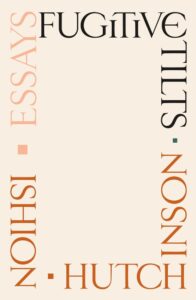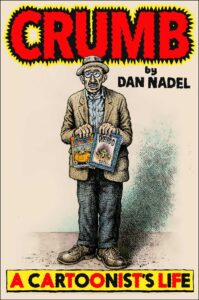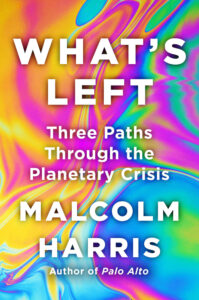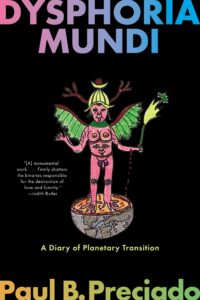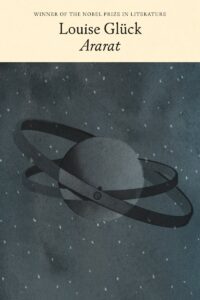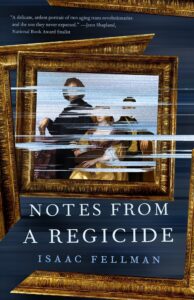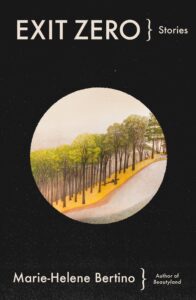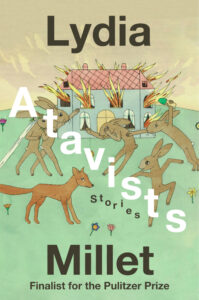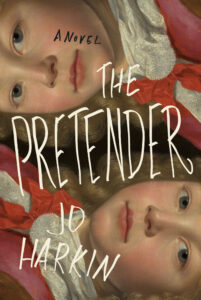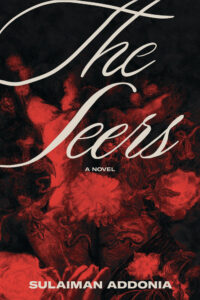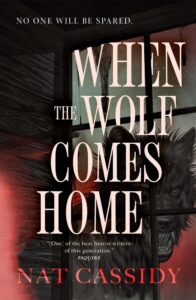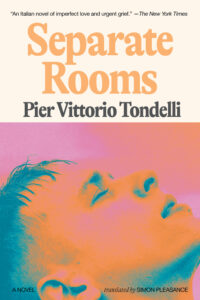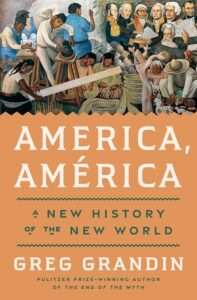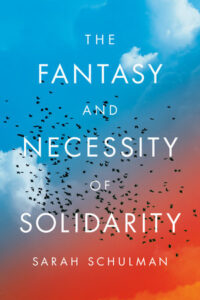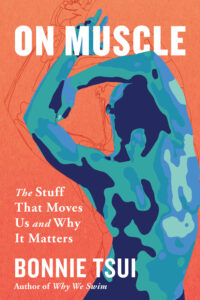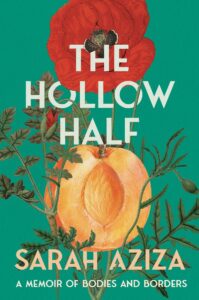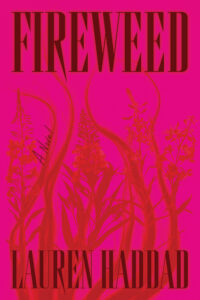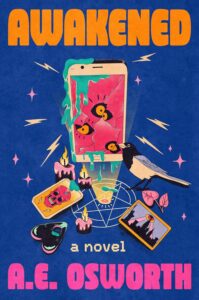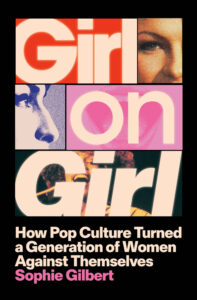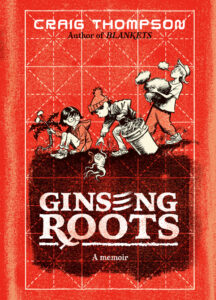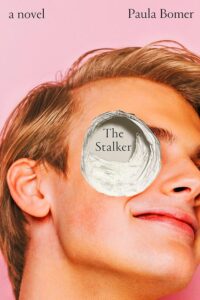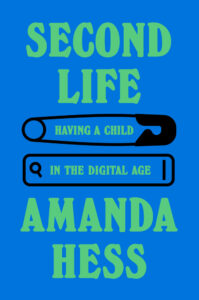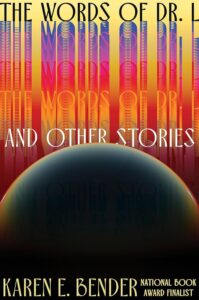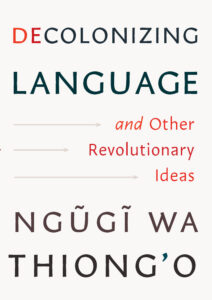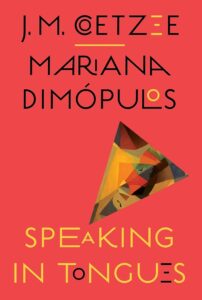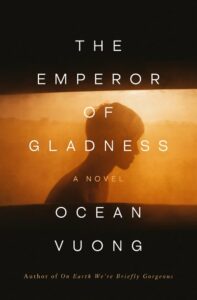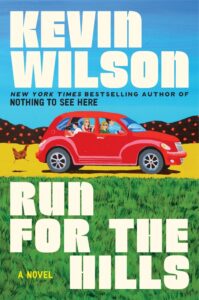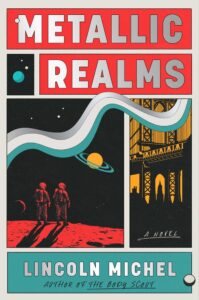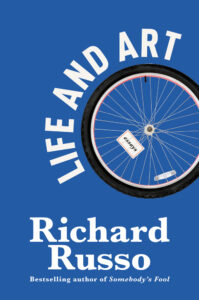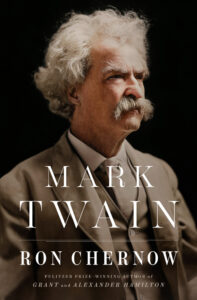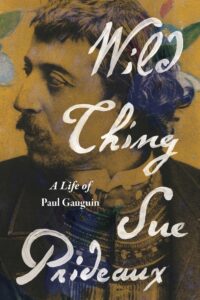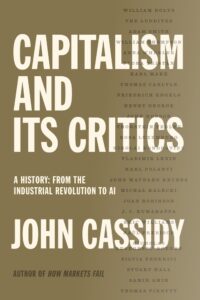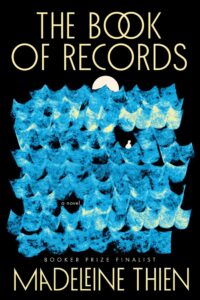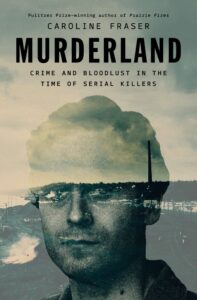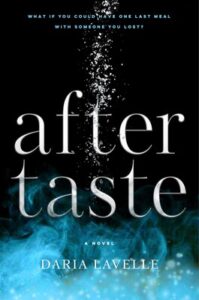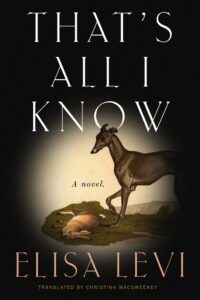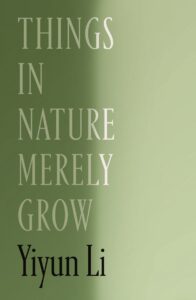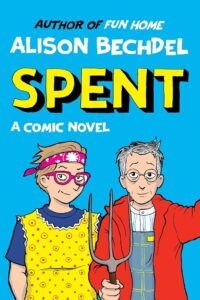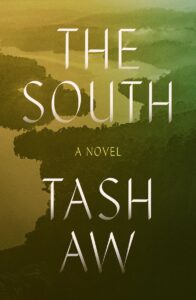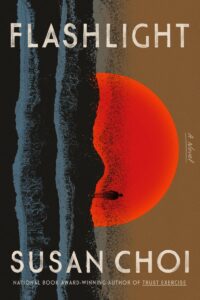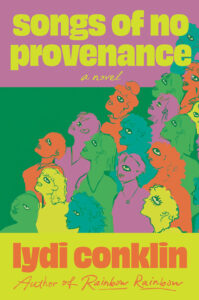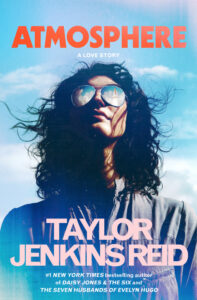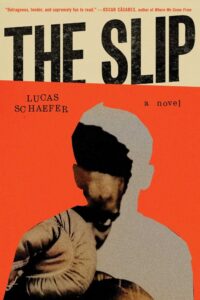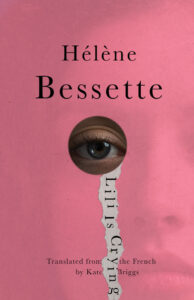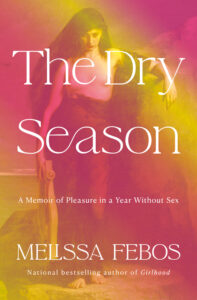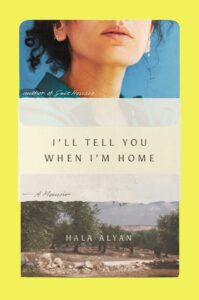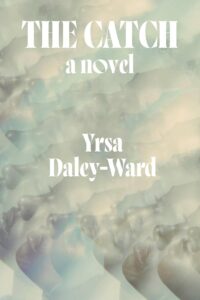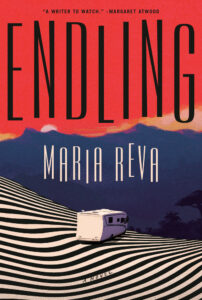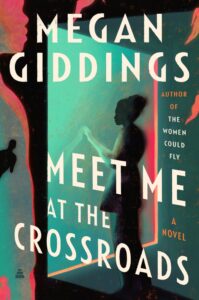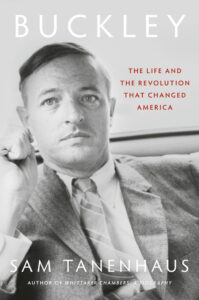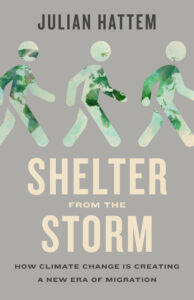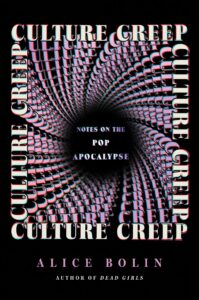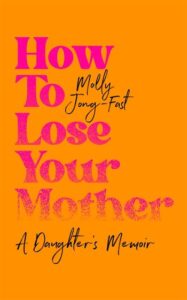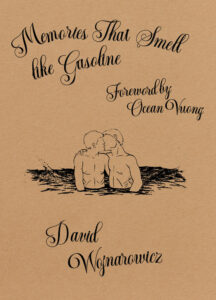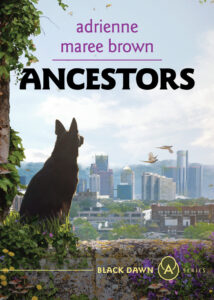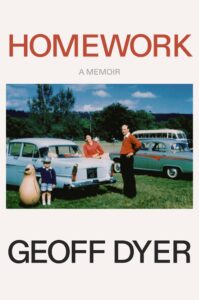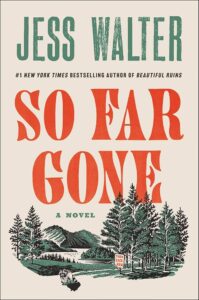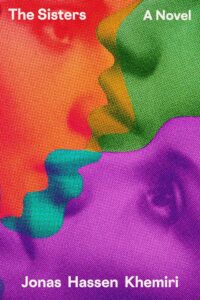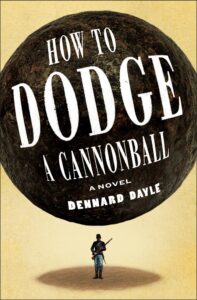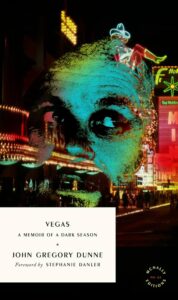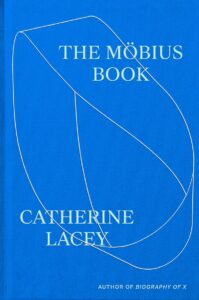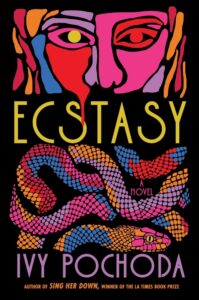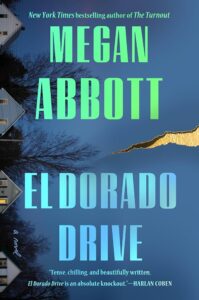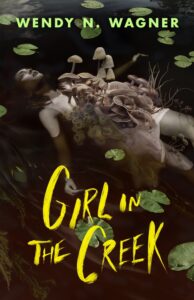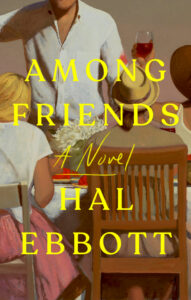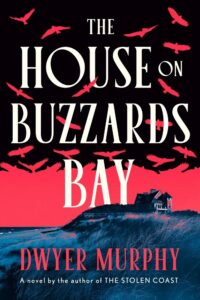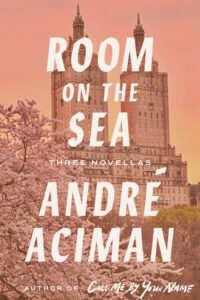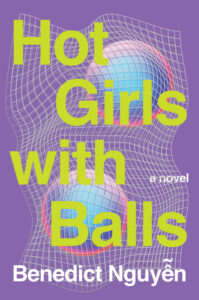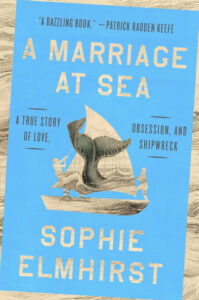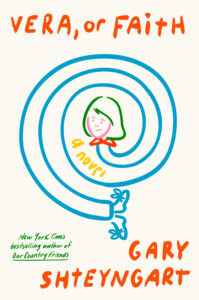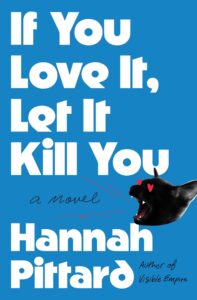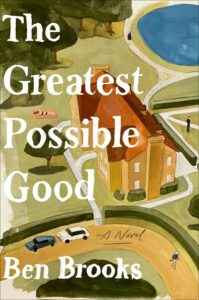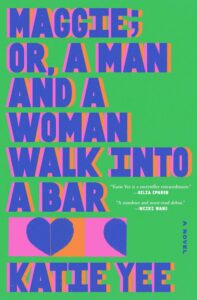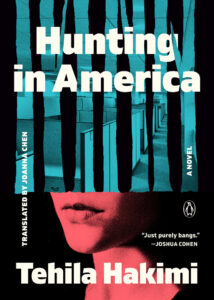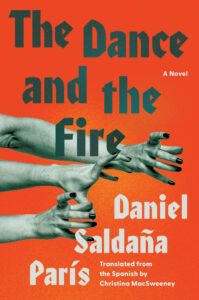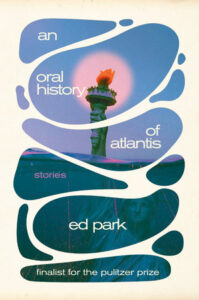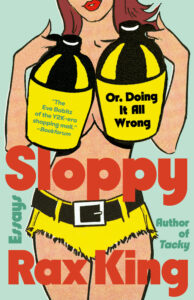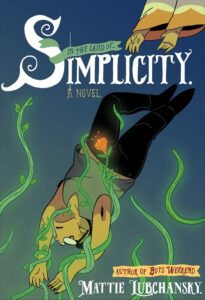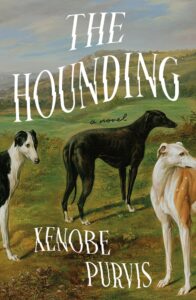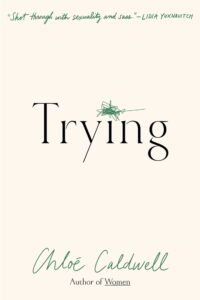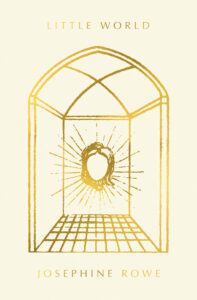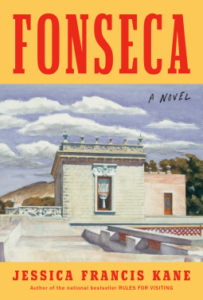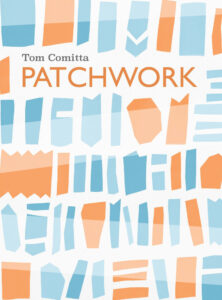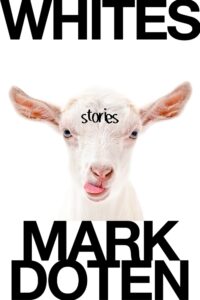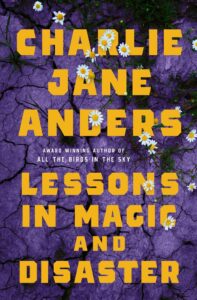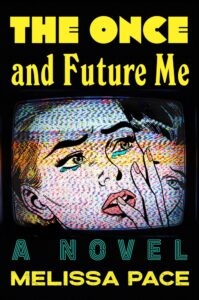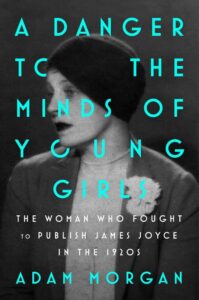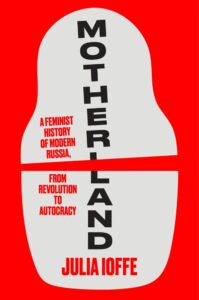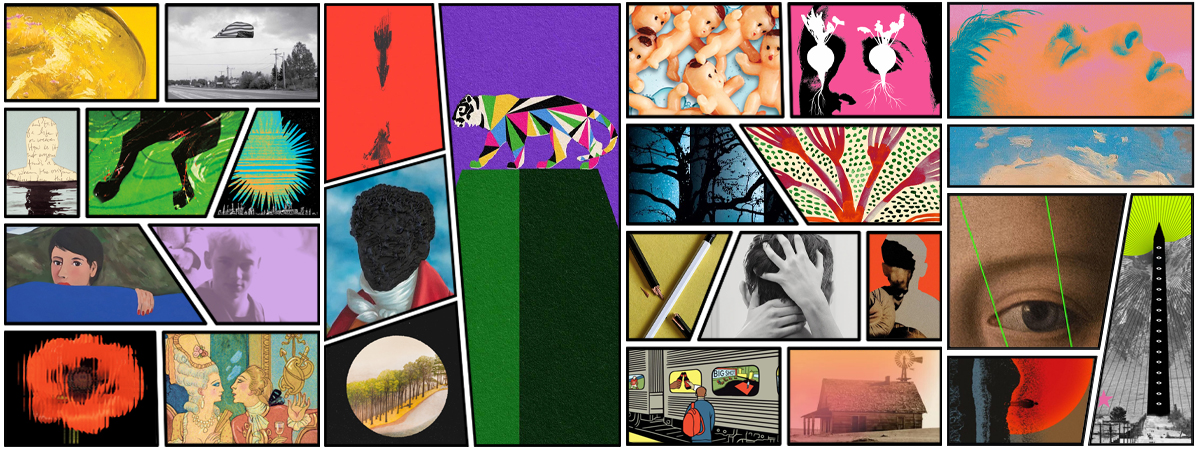
Lit Hub’s Most Anticipated Books of 2025
291 Books We're Looking Forward to in the New Year
Well, 2024 was fairly bad, and 2025 may in fact be worse. Regardless, we will be reading. Here are the books the Lit Hub staff is most excited to pick up in the (first half of the) year ahead.
JANUARY
Adam Haslett, Mothers and Sons
Little, Brown, January 7
Since Imagine Me Gone, I’ve loved Adam Haslett for his bone deep empathy and an unparalleled knack for spiking the saddest scenarios with humor. He’s the rare writer who’s as smart as he is soulful. In his newest novel, he applies those elegant listening skills to a fraught mother/son dynamic. Peter is an overburdened asylum lawyer, swimming against cold bureaucratic tides and trying to fight the good fight in a pre-Trump (administration) New York. His estranged mother Ann, a priest, left the family years ago for a woman in her congregation, and now runs a retreat upstate. And though mother and son are propelled by a similar idealism, they can’t seem to connect.
The admittedly slow action spins on the excavation of a repressed memory, but the prose works like a spell. This is a big, deep meditation on the ways we show care for both kin and community. –Brittany Allen, Staff Writer
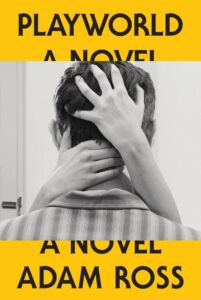
Adam Ross, Playworld
Knopf, January 7
It’s been a whole fifteen years since Ross’s debut novel Mr. Peanut, if you can believe it. He’s back with an equally ambitious, if somewhat less deadly, anti-bildungsroman about a child actor in 1980s New York City being continually let down by the adults in his orbit—an epic family-cum-social novel bursting with detail so specific you might, at times, find that you believe in it just a little bit more than what you see out your window. –Emily Temple, Managing Editor
Zora Neale Hurston, The Life of Herod the Great
Amistad, January 7
When Zora Neale Hurston died, she was working on a sequel to her book about Moses and now, some 65 years later, we get to see what that might have been. It wasn’t lost, per se—the manuscript has been available to scholars at the University of Florida since Hurston’s papers went there after her death—but it was unfinished when she died, and being released in that state with commentary from Deborah Plant and ephemera about Hurston’s research on the novel. What a joy to get one more book from one of the greatest American writers! –Drew Broussard, Podcasts Editor
Anita Desai, Rosarita
Scribner, January 7
From three-time Booker finalist Anita Desai comes a new novel about a young Indian woman who—after a strange encounter with an old woman in a park in Mexico—is confronted with what may or may not be an entirely new history of her own mother’s life. This is at the top of my reading list—can’t go wrong betting on Desai. –ET
Karissa Chen, Homeseeking
Putnam, January 7
Karissa Chen’s sweeping-but-intimate debut novel is the tale of star-crossed lovers separated by decades and continents, told against the backdrop of the major events in 20th century Chinese history. Beginning in pre-war Shanghai and ending in twenty-first century Los Angeles, Homeseeking has been called “epic, assured, and beautifully drawn” by Lisa Ko, and a “kaleidoscopic yet intimate view of the Chinese diaspora” by Celeste Ng. –Dan Sheehan, Book Marks Editor-in-Chief
Samrat Upadhyay, Darkmotherland
Soho Press, January 7
Listen. I love an ecological dystopia. This one has political intrigue, family drama, and it’s also grounded firmly in reality considering the real life rise of fascism and climate disaster. What more you could want? –Oliver Scialdone, Community Editor
Isa Arsen, The Unbecoming of Margaret Wolf
Putnam, January 7
Arsén’s sophomore effort is equal parts sultry and cultured, featuring two Shakespearian actors in a unusual but emotionally fulfilling marriage of convenience who find themselves in a sticky situation. They’ve been hired for a rather strange gig: an eccentric criminal has built a replica globe in the middle of the desert, and he’s ready to bring Shakespeare to life for his audience of one. At first, Margaret is merely there to tag along while her husband enjoys a leading role in Titus Andronicus; she’s recovering from a mental breakdown from the last time she starred in the Scottish Play. When she bonds with their benefactor, however, she finds herself reluctantly agreeing to give the lady one more try. When her marriage is threatened, she turns to her character to find the strength to do what needs to be done, in a perfectly-plotted denouement. –Molly Odintz, CrimeReads Managing Editor
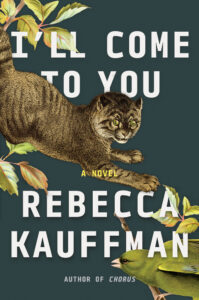 Rebecca Kauffman, I’ll Come to You
Rebecca Kauffman, I’ll Come to You
Counterpoint, January 7
While I spent most of 1995 crying and watching Barney & Friends, some people were having family drama, and lots of it. I’ll Come to You is obviously a work of fiction, but so much attention is given to its characters—their feelings, flaws, their humanity—that they might as well be real. –OS
Mikołaj Grynberg, tr. Sean Gasper Bye, Confidential
The New Press, January 7
Spanning the Holocaust to the present, Confidential follows three generations of a Jewish family in Poland, addressing themes of togetherness and trauma. It’s also, like, funny! –OS
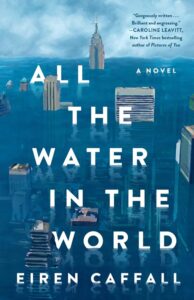 Eiren Caffall, All the Water in the World
Eiren Caffall, All the Water in the World
St. Martin’s, January 7
Move over Night at the Museum. There’s another piece of Natural History Museum fiction in town. Instead, All the Water in the World is an on-the-edge-of-your-seat work of cli-fi about what happens when rising sea levels destroy Manhattan, forcing a 13-year-old and her family to escape in a canoe from a museum exhibit. –OS
Clay McLeod Chapman, Wake Up and Open Your Eyes
Quirk, January 7
Clay McLeod Chapman’s upcoming horror novel is the perfect post-Election read: namely, in that it features demonic forces taking possession of their viewers through the TV network Fax News (Just the Fax!) The ways in which the story evolves take the plot in directions that make all of us understand our complicity in the toxicity of today. –MO
Irvin Weathersby Jr., In Open Contempt: Confronting White Supremacy in Art and Public Space
Viking, January 7
If you’re even a little adjacent to the art, design, and architecture spaces, understanding the ways in which white supremacy informs these fields is essential, and In Open Contempt guides its readers to do just that. –OS
Caryl Phillips, Another Man in the Street
FSG, January 7
Caryl Phillips first novel in seven years, Another Man in the Street is an event to be heralded. Set in London in the 60s, in the midst of a changing urban landscape, an immigrant from the Caribbean named Victor arrives with big, ballooning dreams of finding his fortune and name in the “mother country.” This is not the easy happy ending that Victor discovers: instead there is hardship, and scrabbling, and lowering oneself beyond one’s imaginings. He also finds connection and companionship in others like him who are not privileged, those who also have secrets they’re hiding, have hopes they’re harboring. Meditative and spare, hard and tender, A Man in the Street is worth the wait. –Julia Hass, Book Marks Assistant Editor
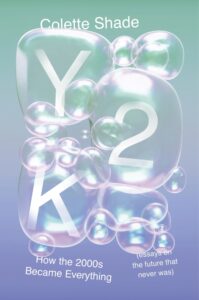 Colette Shade, Y2K: How the 2000s Became Everything (Essays on the Future That Never Was)
Colette Shade, Y2K: How the 2000s Became Everything (Essays on the Future That Never Was)
Dey Street, January 7
I don’t want to make any of you feel old, but the 2000s are back in a big way. This collection, by the prolific essayist and critic Colette Shade, zooms in on iconic objects from the aughts, including TRL, body glitter, and Smash Mouth’s “All Star.” The essays are funny and sharp, and will surely jog your memory, challenge your preconceived notions, and prompt questions about what 2000s nostalgia points to—what does 2025 look like reflected through an AIM chat window? –James Folta, Staff Writer
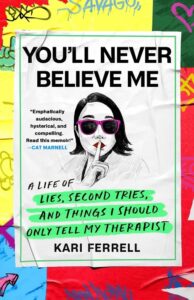 Kari Ferrell, You’ll Never Believe Me: A Life of Lies, Second Tries, and Things I Should Only Tell My Therapist
Kari Ferrell, You’ll Never Believe Me: A Life of Lies, Second Tries, and Things I Should Only Tell My Therapist
St. Martin’s, January 7
It’s impossible to overstate the hold that Kari Farrell, AKA “the hipster grifter,” had on New York media in 2009. As a bored office worker, I was an avid consumer of Gawker’s tales of the Farrell saga, so I can’t wait to read the story of bad checks, weird come-ons, internet infamy, and—presumably—redemption, directly from the source. –Jessie Gaynor, Senior Editor
Thomas Piketty and Michael Sandel, Equality
Polity, January 13
Two of our most important contemporary thinkers, the economist Thomas Piketty and the political philosopher Michael Sandel, wrestle with one of the defining issues of our time: equality. The book approaches the topic from a number of angles: what should our priorities be? What does the end goal look like? And how is any of this possible in an era of revanchist nationalism? This conversation-in-book-form promises to be inspiring for anyone hoping for a more just future. –JF
Sara Sligar, Vantage Point
MCD, January 14
I highly enjoyed Sligar’s twisty debut, Take Me Apart, and have been extremely excited for her follow-up, a tale of the younger generation of an old-money New England family who must reckon with a supposed curse placed on their family tree. But the fascinating thing (and unsurprising from Sligar, who knits together themes of “the modern” and “legacy” skillfully) is that the curse, wrought this round on millennials, takes the form of digital hauntings! –Olivia Rutigliano, Lit Hub and CrimeReads Editor
Nnedi Okorafor, Death of the Author
William Morrow, January 14
This latest from a master of speculative fiction wins my award for most exciting jacket copy. When Zelu, a disenchanted literary novelist, tries her hand at a futuristic space opera just for personal giggles, she winds up risking…the actual universe? I’m in, no further questions. This meal of metafictional hijinks invites readers to imagine the ultimate cost of losing control of one’s narrative. –BA
Aria Aber, Good Girl
Hogarth, January 14
Aria Aber is a poet who veers into that specifically ambiguous territory of “famous poet”, but even if you haven’t yet heard of her, you’re going to know her from her fiction debut, Good Girl. Set in Berlin post 9/11, a young woman grapples with her hidden Afghan heritage and the weight of her familial and cultural expectations, all while mourning her mother, falling in love with a darkly magnetic man named Marlowe, attending clubs, doing drugs, and reckoning with the dissonance of her life and future. I love reading a poet’s fiction: every line is intentional and purposeful, gleaming with sharp, incisive meaning, while taking you on the journey of their narrator’s life, and this one is no different. One gets to have it all in such a case: at the line level, the plot level, and the novel as a whole, it’s a marvel. –JH
Bradford Morrow, The Forger’s Requiem
Atlantic Monthly Press, January 14
The newest installment in this sophisticated mystery series continues the intrigues of rival forgers, this time with an emphasis on a daughter’s revenge and an intricate puzzle built from forged Mary Shelley letters. –Dwyer Murphy, CrimeReads Editor-in-Chief
Andy Corren, Dirtbag Queen
Grand Central, January 14
Andy Corren’s memoir renders an unforgettable image of his mother (following the viral obituary he wrote for her in 2021), and it’s teeming with humor and poignancy. –OS
Eric Dezenhall, Wiseguys and the White House: Gangsters, Presidents, and the Deals They Made
Harper Books, January 14
Organized crime surrounding the Presidency is nothing new, and Dezenhall lays out a rollicking, if disturbing history of various mobs working in and around the nation’s highest office. –DM
Matthew Pearl, Save Our Souls: The True Story of a Castaway Family, Treachery, and Murder
Harper Books, January 14
From the editor of Truly*Adventurous, Save Our Souls comes a staggering account of a family castaway on a deserted island and confronted by a mysterious man who first appears to be their salvation, before a more difficult truth emerges. Pearl works in the vein of David Grann and consistently produces first-rate nonfiction. –DM
Michelle Adams, The Containment: Detroit, the Supreme Court, and the Battle for Racial Justice in the North
FSG, January 14
This is a history book well matched for the moment; the legal scholar Michelle Adams explains how a group of dedicated and passionate local activists fought to integrate Detroit’s public schools and won a crucial, landmark legal victory. Unfortunately, the moment of racial justice was short-lived: soon—and tell if this sounds familiar—the Supreme Court reversed the decision. This book is essential for anyone who wants to understand how we got here, and who never gave up resisting and fighting for a better world. –JF
Agnes Callard, Open Socrates: The Case for a Philosophical Life
Norton, January 14
I admit that I became fascinated by the philosopher Agnes Callard after reading Rachel Aviv’s profile of her in The New Yorker in 2023, not least because it reveals her as a singular, unyielding mind—the rare sort of person who follows their own rules. In her book on Socrates, she applies his thinking to everything from self-discovery and control to the centrality of dialogue with others to love, death, and politics. Well, I don’t know about you, but I’m ready to live a philosophical life in 2025. What else is there anymore? –ET
Zeinab Badawi, An African History of Africa: From the Dawn of Humanity to Independence
Mariner, January 14
I plan to read Zeinab Badawi’s brilliant survey of African history in slow pieces, absorbing the information within as reverently as possible, for Badawi draws on sources and features perspectives that have long been denied their rightful place in the historical journey. It is an honor to read and learn from her work, and to feel the extent of her understanding. And it should be a duty for any interested in history to read this fascinating text. –MO
Caleb Femi, The Wickedest
MCD, January 21
I’m a sucker for “durational performance” and although Femi’s latest is a thin little volume, it manages to hold an entire night inside its pages. With words, photos, and more, it takes you inside an infamous long-running house party in South London and shows you the lives of the partygoers, the ways that one can fall into the warm embrace of sound, and the joys of language all at once. –DB
Patrick Modiano, tr. Mark Polizzotti, Ballerina
Yale University Press, January 21
Yale University Press brings American readers another gift this year: a new translation of the Nobel-prize winning Modiano’s rich, evocative Ballerina, set in the world of dance (and oblique existential mysteries) in 1960s Paris. –DM
Han Kang, tr. E. Yaewon and Paige Aniyah Morris, We Do Not Part
Hogarth, January 21
It may be the new year, but it’s still midwinter, the perfect time to disappear into this snowy new novel from our newly minted Nobel Laureate: a dream-narrative of history, remembrance, and friendship rendered in her complex, lyrical prose. –ET
Stuart Murdoch, Nobody’s Empire
HarperVia, January 21
The debut novel from Belle and Sebastian frontman Stuart Murdoch concerns a young man named, well, Stephen, living in Glasgow, suffering from chronic fatigue syndrome, wishing to be a musician. If you are a fan of Murdoch’s old sad-bastard music, you know about some of this already, which is likely only to make it more pleasurable. I personally will be paying tribute to my college years by reading this book whilst wearing massive amounts of eyeliner, drinking cheap whiskey, and being cold as if it’s earning me something. –ET
Tao Leigh Goffe, Dark Laboratory: On Columbus, the Caribbean, and the Origins of the Climate Crisis
Doubleday, January 21
This one comes garlanded in praise from historian heavyweights like Imani Perry, Ada Ferrer, and Jack E. Davis, and sounds absolutely fascinating. Billed as an investigation of the Caribbean “as both an idyll in the American imagination and a dark laboratory of Western experimentation, revealing secrets to racial and environmental progress that impact how we live today,” Goffe—an award-winning theorist and interdisciplinary artist—dismantles the imperialist thinking that clouds our understanding of the region and “situates the origins of racism and climate catastrophe within a colonial context.” –DS
Ida Vitale, tr. Sean Manning, Lexicon of Affinities
Charco Press, January 21
A vibrant and playful memoir-in-dictionary-form, from the hundred-year-old Vitale. It’s a joyous celebration of a life well lived, with entries that range from the simple to the titanic (and rarely how you’d expect them to shake out)—and a robust introduction for English-speaking readers to a writer whose work is only starting to make its way into translation. Plus, Charco has put it in a beautiful design (as they always do). –DB
Andrew Lipstein, Something Rotten
FSG, January 21
I’ve been a fan of Lipstein since his debut, Last Resort—he can always be counted on to be sharp and sneaky, somehow both critical and warm, and often ridiculously funny while skewering home a hard truth or two, and therefore he is the first person I would trust to write a book like this one: a satire of masculinity and modern life in which a disgraced reporter decamps from New York to Copenhagen with his family, and gets sucked into—well, it sounds bad. First book on my new year’s reading list! –ET
Henry Alford, I Dream of Joni: A Portrait of Joni Mitchell in 53 Snapshots
Gallery Books, January 21
Henry Alford’s book on Joni Mitchell examines her through a fresh lens, with each of the 53 essays taking on a different topic in Mitchell’s life and work. Fans will love poring over the pages. –OS
Malu Halasa & Jordan Elgrably, eds., Sumud: A New Palestinian Reader
Seven Stories Press, January 21
The fiction, poetry, and essays in this anthology all showcase the artistry and power of Palestinian resistance, and while the book includes work from the 20th century, its focus on more contemporary writing makes it feel particularly urgent. –OS
Kristen Martin, The Sun Won’t Come Out Tomorrow: The Dark History of American Orphanhood
Bold Type Books, January 21
In this book, a mix of reportage, cultural criticism, and memoir, Martin unpicks our cultural myth of the orphan, critiquing the popular narratives and unveiling the historical truth of life for American orphans from the 1800s to the present. They were, you may not be shocked to learn, mostly not adopted by millionaires or rescued by a kind grandfather. Sure to be fascinating. –ET
Susan Barker, Old Soul
Putnam, January 28
Susan Barker’s upcoming literary horror novel contains some of my favorite things: ghosts, gothic vibes, and general weird stuff. This story follows two strangers connected by the mysterious deaths of their loved ones, as well as the appearance of a strange woman. Old Soul is a haunting story of grief and ghosts and the ways the past stays with us. –McKayla Coyle, Publishing Coordinator
Paul Theroux, The Vanishing Point
Mariner, January 28
A new collection of short stories from Paul Theroux is tied together by life’s “vanishing points,” where seemingly disparate perspectives converge and nothing further can be seen. It’s a fittingly ambitious theme for a legendary author. –DM
Robert Littell, Bronshtein in the Bronx
Soho Press, January 28
For those who enjoyed Yuri Hererra’s account of Mexican hero Benito Juarez’s time in New Orleans, here’s another tale of revolutionary exile: Trotsky in NYC! Robert Littel is the perfect person to take on this daunting task without sacrificing story, and I’m psyched to dive into Leon’s days in the city I once called home. –MO
Leyna Krow, Sinkhole, and Other Inexplicable Voids: Stories
Penguin Books, January 28
Daughters, mothers, sisters, friends, any combination, and any sort of woman, are attempting to do right in this collection by Leyna Krow. Existing at that sweet and terrifying spot at the crux of how to love each other, and how to love the world that is dying around us, is where this collection sits. Sinkhole grapples with the changing nature of the land we live upon, along with the everlasting urge to be in relation with one another, treating that desire as imperative and necessary even in the face of our planet’s decay. Each story is satisfying in its own right and intrinsic to the collection as a whole: at times speculative, at times starkly realistic, the world heats and floods cascade, and still the beating hearts of humanity continue to hope and fear and dream and love and love and love. –JH
Maggie Su, Blob: A Love Story
Harper Books, January 28
I am absolutely frothing at the mouth waiting for this book to come out. Described as a “modern Mrs. Caliban” (ifykyk), Blob follows a young woman who discovers a sentient blob and tries to turn it into her ideal boyfriend. Now this is art! This is literature! More books about women dating weird objects they found in the street, please. Blob hive rise up. –MC
Lola Kirke, Wild West Village
Simon & Schuster, January 28
One just can’t help but be drawn in by the Kirke family. Each sister is specific and unique, yet all make up a gorgeous, talented, magnetically cool coven. Lola is an actress who’s starred in various indie films such as Mistress America, and has now written this not-quite-a-memoir (it might be a memoir) discussing her riotous upbringing, her bohemian parents and the Kirke girls’ unusual and poignant sisterly relationship. It peels back the curtain on a striking family: a warts and all reveal of how these women have grown from their wild days to their adult beings, and shares some lessons learned along the way. –JH
Imani Perry, Black in Blues: How a Color Tells the Story of My People
Ecco, January 28
I plan to read everything Imani Perry writes. I’ve admired her knack for braiding theory, history, and intimate personal inquiry ever since 2018’s Vexy Thing: On Gender and LIberation. In a new book, she considers color in a world that predates racial imagination. This lyrical look at the indigo trade gets at a hue’s commercial and spiritual significance. –BA
Chris Hayes, The Sirens’ Call
Penguin Press, January 28
Do you, too, feel like you can’t break the addiction of scrolling on your phone? Of feeling the phantom vibration of a text you didn’t get, but you have to check just in case? Are you also totally fucking frustrated with all of the fake ads, the weird algorithms, the sense that things are messier and worse than they used to be? Chris Hayes has the book for you: it doesn’t necessarily make you any happier, but it will help explain just how our attention has been turned into a resource to be extracted by the barons of late capitalism. –DB
Nicholas Carr, Superbloom: How Technologies of Connection Tear Us Apart
Norton, January 28
This book is so timely. I say this as an extremely online person who has a deep love for the culture and history of the internet: maybe some of this was a bad idea. –OS
Neko Case, The Harder I Fight the More I Love You: A Memoir
Grand Central, January 28
If you were a weird-sad girl listening to Furnace Room Lullaby in your dorm room, then you’re also excited to read Case’s “heartbreaking and funny” memoir, charting her rise from a childhood as an invisible girl “raised by two dogs and a space heater” to a beloved singer-songwriter and artist. –Emily Firetog, Deputy Editor
Tanya Pearson, Pretend We’re Dead: The Rise, Fall, and Resurrection of Women in Rock in the ’90s
Hachette, January 28
The ’90s explosion of politically incisive, socially observant, and wildly talented women in rock and roll seemed to dry up by the 2000s, and this new book sets out to answer why. Written by Tanya Pearson, the founder of the Women of Rock Oral History Project, Pretend We’re Dead is built around interviews with Liz Phair, Shirley Manson, Kristin Hersh, as well as members of Hole, Veruca Salt, Babes in Toyland, and many more. A must-read for music fans and anyone who is still (correctly) angry at the Bush Administration. –JF
Dorian Lynskey, Everything Must Go: The Stories We Tell About the End of the World
Pantheon, January 28
Like any normal person paying attention to the rather apocalyptic nature of our day to day life, I think about the end of the world fairly regularly. So Lynskey’s comprehensive guide to everything that could end the world is less a depressing read than an illuminating and entertaining romp into the literature, art, music, and film that asks the question of how it will end. From comets to pandemics, world wars, the Cuban Missile Crisis, Y2K, and the climate emergency, Lynskey looks at what drives our obsession with the end of the world—even if nothing can be done about it. –EF
Rachel Syme, Syme’s Letter Writer: A Guide to Modern Correspondence About (Almost) Every Imaginable Subject of Daily Life, with Odes to Desktop Ephemera and Selected Letters of Famous Writers
Clarkson Potter, January 28
Not to be a creep, but: Rachel Syme is one of my favorite social media follows. She’s a lifestyle maven who always seems to be enjoying herself, and I regularly appreciate her book, film, and perfume(!) recommendations. (Not to mention those elegant New Yorker profiles.) A longtime zealot for the handwritten letter, Syme’s now bringing us a coffee table book about “modern correspondence” that’s one part guide, one part ode to a lost art. Featuring sumptuous illustrations by Joana Avilez, I can’t wait to curl up with this bauble on a rainy day. –BA
Edmund White, The Loves of My Life: A Sex Memoir
Bloomsbury, January 28
White is looking back on decades worth of sex, interrogating the encounters that defined moments in his life and came to inspire so many of his great works. Here’s the kind of witty, insightful memoir that befits a literary legacy like White’s. –DM
FEBRUARY
Brittany Newell, Soft Core
FSG, February 4
Soft Core tugged me in fast and held me under. This sophomore novel from a sensational voice follows a curious young person, Baby, as she drifts from graduate school into sex work and searches for an AWOL ex-boyfriend on the streets of San Francisco. Baby’s narration is sage and witty, easily inhaled (“Youth made my general aimlessness cute; without it, I was just a bad investment”). But musings burn on the way out (“In our world, we studied sex appeal and sold it back to glands in suits”). A giddy, bracing entry into the scrappy-women-becoming-themselves canon.
If you’re looking for a stylist in the Raven Leilani tradition (but more antic?), or if you had strong reactions to either All Fours or Anora, this one should be on your radar. –BA
Michel Nieva, tr. Rahul Berry, Dengue Boy
Astra House, February 4
A part human and part mosquito child born from an experiment gone wrong goes on a journey, and a post-post-post capitalist world is on the brink of collapse. Sign me up. –OS
Ali Smith, Gliff
Pantheon, February 4
A new Ali Smith is always cause for excitement (I was excited about this last year, when I thought it was coming out in the fall—which it did in the UK, to be fair) and her latest is the first of a loose duology. All I know about this one is that it’s in the near future, it involves children and possibly a horse, and it will inevitably be intellectually rigorous and sneakily daring. But however she does it, you can always trust Ali Smith to capture the anxieties and joys of modern life. –DB
Olivia Wolfgang-Smith, Mutual Interest
Bloomsbury, February 4
I loved Wolfgang-Smith’s debut novel Glassworks, so am looking forward to this novel about queer entrepreneurs in Gilded Age New York. When Vivian Lesperance leaves her quiet life in upstate New York and meets Oscar Schmidt, a middle manager for a Midwest soap manufacturer, she sees someone who will lead her to the life she wants—one where she can pursue relationships with women (which works out since Oscar is more interested in men anyway). Seeking capital, they partner with Squire Clancey, scion of an old American fortune, and form Clancey & Schmidt. But when Oscar and Squire fall in love, they form a very complicated and fragile partnership—and exposure can threaten them all. Drama! –EF
Virginia Feito, Victorian Psycho
Liveright, February 4
Victorian Psycho is buckets of macabre fun, the story of a young governess stuck in the home of a twisted, wealthy family—and how she attempts to keep her violent fantasies of revenge, retribution, and good, old-fashioned cruelty at bay. That is, of course, until Christmas, when she’ll finally be able to give her employers the gifts that they so dearly deserve. It’s a real… “sleigh ride.” I’m so sorry. But not for telling you to go read it. –OR
Gerald Murnane, Barley Patch
And Other Stories February 4
Originally published in Australia in 2009 (after a 14-year break from writing fiction), Barley Patch is Murnane’s candid attempt to understand the nature of writing, particularly his own reasons for doing it. And when one of the great writers in the English language wrestles with such questions, we all benefit. –Jonny Diamond, Editor in Chief
Youssef Rakha, The Dissenters
Graywolf, February 4
I always find myself pulled toward historical stories, and The Dissenters is particularly exciting. Rakha’s first novel written in English is an expansive story that traces seventy years of Egyptian history through the life of one woman. In it, a young man experiences visions of his mother after her death, and these visions that teach him about the many different women she was throughout her life. This book sounds dreamy and strange and totally singular. –MC
Lucy Rose, The Lamb
Harper Books, February 4
This book was written for me in particular. Queer gothic folk horror? Say less. The Lamb follows a mother and daughter living alone in the woods, tending to the strangers who show up at their door. When a beautiful stranger shows up and the daughter begins to fall in love with her, all hell breaks loose. I’m ready for this book to consume me. –MC
Allegra Goodman, Isola
Dial Press, February 4
Goodman’s novel Sam was a fantastic bildungsroman that explored class, addiction, parenthood, and ambition. In Isola she turns to historical fiction to tell a story about a noble girl, based off of the 16th century French noblewoman Marguerite de la Rocque. Marguerite is orphaned as a child and her cousin, tasked as her guardian, uses her inheritance to pay off his debts. He then takes her on a journey to New France, but en route she falls in love with her cousin’s servants. She, her nurse, and her lover are abandoned on an uninhabited island, and the story follows her drive to survive. Resilience! Surviving the elements! Polar bears! But one of the best parts of Goodman’s writing is her insistence that all young girls have stories and lives worth sharing, even if this one is particularly exceptional. –EF
Deborah Treisman, ed., A Century of Fiction in The New Yorker: 1925-2025
Knopf, February 4
I love an anthology, and you could do a lot worse than 100 years—and 1,152 pages—of fiction published in The New Yorker; if nothing else it will be a fascinating document, and a very nice way to have some of my favorite stories always at hand. –ET
Kevin Young, ed., A Century of Poetry in The New Yorker: 1925-2025
Knopf, February 4
Ditto the above; and potentially even more interesting to wade through over a thousand pages of poetry than fiction, if only because of how many more distinct works you’ll be getting. –ET
Czeslaw Milosz, tr. Robert Hass and David Frick, Poet in the New World: Poems, 1946-2953
Ecco, February 4
The collection spans the pivotal post-war time in Milosz’s life and includes previously untranslated work from his time in Washington, D.C. –OS
Hanif Kureishi, Shattered: A Memoir
Ecco, February 4
In late 2022, novelist Hanif Kureishi collapsed in Rome; when he woke up, in a hospital bed, he couldn’t move his arms or legs. He began tweeting about his experiences, dictating his messages to his family—messages that soon began to encompass not only his thoughts about his accident and his mortality, but everything else that makes up a life: sex, drugs, music, parenthood, reading, writing. The Twitter thread became a Substack; this memoir collects, edits, and expands on the original messages to create a lasting record of pain and survival. –ET
Lidia Yuknavitch, Reading the Waves
Riverhead, February 4
Yuknavitch built a cult following with Chronology of Water, and is following up with another bracing, daring memoir, Reading the Waves. Much life has been lived since Chronology and Yuknavitch bares all in the telling. Using the transformative power of storytelling and harnessing narrative as her framework, Yuknavitch goes through it again: her traumatic upbringing, the abuse she suffered, her relationships of all sorts, to try and understand the story itself, and then the telling of it. In many ways a book-length ode to the power of craft, Yuknavitch continues on with the legacy she’s creating: the need for brutal honesty to pave the way for a brighter path. –JH
David Hajdu, The Uncanny Muse: Music, Art, and Machines from Automata to AI
Norton, February 4
Conversations about the intersection of art and technology right now are largely dominated by discussions of generative AI. Instead, this book covers a much wider history, from early animatronics to the advent of house music. It’s a refreshing scope. –OS
Jennifer Finney Boylan, Cleavage: Men, Women, and the Space Between Us
Celadon Books, February 4
One thing we’re absolutely going to do this year is read a metric ton of books by trans authors. But where to start? Whoa wait, Cleavage is a book by a trans author! And it’s about being trans in America! Boylan’s newest book is an examination of gender identity and the ways our conceptions (and misconceptions) of gender affect the world around us. Cleavage promises to be insightful, readable and clever. –MC
Geraldine Brooks, Memorial Days: A Memoir
Viking, February 4
Brooks removed herself to an island off the Australian coast to get down to the writing of this new memoir, a profound meditation on the nature and practice of grief across cultures, and in one very particular experience—her own, after the unexpected loss of her partner. –DM
Natasha Hakimi Zapata, Another World is Possible: Lessons for America from Around the Globe
The New Press, February 4
Even if you don’t believe the “America is the best country in the world” propaganda, I think it can be hard for Americans to remember that the “American Way” isn’t the only way. That’s why I’m so excited for Another World is Possible, a book that offers international solutions to American problems. There are so many other countries in the world that are handling modern problems differently (and, frankly, better) than we are. As we stare down the barrel of another Trump presidency, it’s helpful to remember that we aren’t the only country in the world, and there are other countries making better choices. –MC
Edward Gorey, ed. Tom Fitzharris, From Ted to Tom: The Illustrated Envelopes of Edward Gorey
NYRB, February 4
I love Edward Gorey, as (I’m assuming) we all do, if we’re reading this website. This marvelous collection is the perfect way to deepen your love of Gorey (or, if you’re new to his work, fall in love with it). Tom Fitzharris and Edward Gorey began a friendship in 1974, and in the following year, Gorey and Fitzharris began a correspondence. Gorey sent Fitzharris a total of fifty letters, all whimsically illustrated and full of charming, miscellaneous bits of trivia, and fun surprises. And finally, they’ve been reprinted all together. Read it and feel (as I did) the privilege of being Edward Gorey’s pen pal. –OR
Sarah Chihaya, Bibliophobia: A Memoir
Random House, February 4
Anyone reading this website believes in the power of books. And Chihaya, who built her life around books as a reader, critic, and teacher, understood that power. But when she’s hospitalized for a nervous breakdown, “the world became an unreadable blank page.” In these essays, she charts a story of breakdown and survival through books, exploring race, depression, suicide, and the idea that books allow us to lose—and find—ourselves. This feels like a must read for any reader determined to understand why we turn to literature in both the best and worst of times. –EF
Eowyn Ivey, Black Woods, Blue Sky
Random House, February 4
Obviously I have to be the one to recommend the new Eowyn Ivey book, since we’re both writers from Alaska. I love Ivey’s lush, vibey folk fiction, so I’m particularly looking forward to this retelling of Beauty and the Beast set in rural Alaska. A single mother falls in love with a strange man, but when she and her daughter move into him in his isolated cabin, it’s not what she expected. This novel is sure to be beautiful and haunting. –MC
Bruce Robbins, Atrocity: A Literary History
Stanford University Press, February 4
Maybe it’s cheating for me to write this blurb because Bruce Robbins is (in addition to being one of my absolute favorite thinkers in the world) one of my absolute favorite professors from my graduate school days. But let’s put that aside; please allow me to recommend his fascinating and essential new book exploring literary representations of mass violence to show how such a thing can take shape—into the abhorrent phenomenon it is, in today’s world. –OR
Sara Gran, Little Mysteries
Dreamland Books, February 11
Gran has rightly had a bit of a renaissance in the last few years, as Come Closer has found a new hungry group of readers. I’ve always been a fan of Gran’s Claire DeWitt mysteries—existential, elliptic, frustratingly human [positive]—and this new collection of short DeWitt stories (or DeWitt-adjacent stories) is like water in the desert. There’s a lot of play afoot here (including a cootie catcher story!) and that makes me all the more excited for Gran’s return to fiction after a few quiet years. –DB
Fernando A. Flores, Brother Brontë
MCD, February 11
Fernando Flores, when he’s not working as a bookseller extraordinaire, crafts bizarre set pieces that are as wonderful to read as they are difficult to categorize. His latest takes us into the near future, where the denizens of a dusty Texas town fight to save their precious volumes from the state’s enthusiastic book shredders. –MO
Koji A Dae, Casual
Tenebrous Press, February 11
The best science fiction is often the kind that helps us understand (or even… warns us?) about the world of tomorrow, and Dae’s deserves to be up there with Atwood, Bradbury, Dick, and Gibson. At a time when bodily autonomy is increasingly under assault, the neural implants of Dae’s novel seem both inevitable and horrifying—and her look at motherhood under technological surveillance is a must-read for the moment. If you liked Black Mirror but don’t think you can read SF, I challenge you to give this one a shot. –DB
Charlotte Wood, Stone Yard Devotional
Riverhead, February 11
A woman retreats to a convent in Australia, where her isolation is disrupted by a few intense occurrences (including an onslaught of mice). This was on the 2024 Booker Prize shortlist, which is probably enough of a recommendation for most readers. But Ryan Chapman, when I talked to him about the Booker, really sold this for me. He called it one of the best pandemic novels he’s seen, and although it isn’t explicitly about COVID, you can see the ways in which Wood’s exploration of isolation and anxiety fit with the mood of those harrowing early months of 2020. –DB
Premee Mohamed, One Message Remains
Psychopomp, February 11
Mohamed had a big 2024 (The Butcher of the Forest was one of my favorite SFFH titles of last year and The Siege of Burning Grass would’ve been on that list if I had finished it in time) and this story collection is here to tide over the ever-growing horde of readers hungry for more. This is a novel in stories, or a linked collection, depending on how you look at it: four stories about colonialism and surviving under empire, all set in the same fictional world. For a taste, check out “The General’s Turn” in The Deadlands—I guarantee it’ll speed you towards a pre-order. –DB
Margie Sarsfield, Beta Vulgaris
Norton, February 11
I’m trying to create a niche for myself as the preeminent weird-girl-book guy. To cement my legacy, I’m recommending Beta Vulgaris, a very weird book that I’m very excited for! When a young woman and her boyfriend start working a seasonal job at a sugar beet farm, she wants to make enough money to pay her rent for a few months. What she gets is a string of mysterious disappearances and a pile of beets that seems to be talking to her. Thank you Margie Sarsfield for your contribution to the “vegetable gothic” canon. –MC
Alba De Céspedes, tr. Ann Goldstein, There’s No Turning Back
Washington Square Press, February 11
While de Céspedes’ novel was technically published (and banned by the Italian Fascist regime) in 1938, this English translation is brand new. This novel by Alba de Céspedes, the boundary-breaking 20th-century Italian feminist author, follows a group of very different women attending college together in Rome. If you’re looking to rediscover historically significant (but often ignored) female authors this year, There’s No Turning Back is a great place to start. –MC
Sam Rebelein, The Poorly Made and Other Things
William Morrow, February 11
Rebelein is one of the bright new voices in horror fiction, blending a giddy playfulness with a keen eye for the darker side of the universe. Here, he returns to Renfield County in upstate New York (the setting of his debut, Edenville) with a story collection that offers plenty of chills—but for every moment of fright, there’s a commensurate moment of humanity. It’s a surprisingly powerful book about grief, loneliness, and mental health too. Plus, rumor has it there might be a second novel coming later in the year, so now’s the time to whet that appetite…. –DB
Lauren Francis-Sharma, Casualties of Truth
The Atlantic Monthly Press, February 11
In this new novel from the author of Book of the Little Axe, a woman is confronted by a past she had hoped—and expected—to keep hidden. Xochitl Gonzalez calls it “an unforgiving tale of cat-and-mouse begging us to confront just how far we’d go to take control in a society hell-bent on minimizing our pain,” and adds, “these pages set loose the raging, wicked what-ifs we keep deeply and shamefully hidden inside our basements.” –ET
Sam Mills, The Watermark
Melville House, February 11
I picked up a copy of this when I was in Europe this summer, where it was already out from Granta—and I was absolutely blown away. I love a story about going inside of a story, and Mills does it with gusto here. Her protagonists are trapped inside a story (or is it several stories? Or are they trapped?) by an author looking to extend his life… but can a life be well-lived even inside of someone else’s fiction? There are elements of Inception’s several-layers-down trickery here but it’s also a set of charming and well-done pastiches of everything from JG Ballard to doorstopper Russian novels. Let yourself get lost in this, as we all imagine we might get lost in a good book from time to time—Mills will transport you. –DB
Krystelle Bamford, Idle Grounds
Simon & Schuster, February 11
I read this in a single sitting, sort of by accident. I started it and the shifty first-person-plural narration snagged me like a branch grabbing at my shirt and then suddenly it was 3am and I hadn’t gone to bed. There’s a deeply unsettling quality to this book, both in the way that Bamford ratchets up the unease but also in the way that she will sometimes strip it all away without warning. It is the story of a single summer’s afternoon, a bunch of cousins at a family reunion, something bad lurking in the later part of the day… but to say more would be a crime. An original stunner. –DB
Clarice Lispector, Covert Joy: Selected Stories
New Directions, February 11
What can I say about Lispector that hasn’t already been said? This selection of stories by the great Ukrainian-Brazilian writer is the greatest hits from her Complete Stories, featuring some of her most beloved work. Lispector is an astoundingly good writer, and this curated anthology is a great entry point for new readers, and an excellent distillation for old fans. Plus this edition has an introduction by Rachel Kushner, which on its own is well worth the price of admission. –JF
Shane McCrae, New and Collected Hell
FSG, February 11
In a collection of his new and previous work, Shane McCrae’s project is to take the reader on a journey through Hell. It’s an epic project, and one for which McCrae’s prior work—with echoes of the religious and the mythic spoken in a lyrical, bracingly contemporary voice—has laid the groundwork. He’s a poet everyone who cares about contemporary poetry should be reading. –JG
Kelsey McKinney, You Didn’t Hear This From Me: (Mostly) True Notes on Gossip
Grand Central, February 11
From novelist and host of the popular podcast Normal Gossip comes a study of gossip—but one that never forgets the joys of it. As someone who has long refused the notion that gossip is bad (just look at all the benefits!), I am looking forward to being further vindicated, not to mention delighted, and entertained. See, benefits. –ET
Pankaj Mishra, The World After Gaza: A Short History
Penguin Press, February 11
Derived in part from his widely read, rightfully lauded essay in the London Review of Books, “The Shoah After Gaza” Mishra’s latest undertakes the difficult but important task of reconciling the contradictory stories of the Global North and the Global South. While the former has squandered the last of its alleged moral authority in support of neoliberal empire the latter urgently seeks liberation from the deadly and ongoing aftershocks of colonialism. Essential reading. –JD
Rich Benjamin, Talk to Me: Lessons from a Family Forged by History
Pantheon, February 11
Rare is the memoir that allows us a window into the deeply personal fallout of very public, world-historical moments in history. So it is with Benjamin’s Talk to Me, the story of his family’s unwilling exile from Haiti (his grandfather was briefly president in 1957), and how that unspoken trauma passed from generation to generation. –JD
Erling Kagge, tr. Kari Dickson, After the North Pole: A Story of Survival, Mythmaking, and Melting Ice
HarperOne, February 11
I think about Kagge’s Silence: In the Age of Noise at least once a week; if you don’t know him, he’s a Norwegian explorer, a sort of physical philosopher whose work is quietly essential to our understanding of the world. His latest book chronicles his 58-day journey to the North Pole, on skis—the first, along with his companion, to make it there “without dogs, without depots and without motorized aids.” Newness and strangeness still exists; I will be reading with great pleasure. –ET
Eve L. Ewing, Original Sins: The (Mis)education of Black and Native Children and the Construction of American Racism
One World, February 11
Even as public schools seem under constant attack from the moral panic brigade, which seeks to ban any mention of queer people, slavery, Jim Crow, Indigenous genocide… (it’s a long list) Ewing suggests that the American education system is already doing what it was designed to do: maintain this country’s foundational white supremacist structures. Only with a radical rethinking of these systems can America move beyond its racist origins. –JD
Evie Wyld, The Echoes
Knopf, February 18
The novel opens with the narrator having died and realizing that he’s a ghost. If you are like me, you’ll probably not need any further recommendation. In case you do, though: Wyld is a master of the mundane, of the small moments between people, and this is a thorough interrogation of a relationship and what can stay hidden even between the closest of couples. This territory has been mined in film several times over, but never so successfully in literature as it is here. –DB
Madeleine Watts, Elegy, Southwest
Simon & Schuster, February 18
A married couple on a road trip in the American Southwest reckon with the problems with their relationship, a possible pregnancy, and imminent climate catastrophe. This book promises to be the perfect showcase for Watts’ considerable skill at rendering humanity amid climate grief. –JG
Kat Dunn, Hungerstone
Zando, February 18
Before the very gay Dracula was ever conceived, there was the much gayer Carmilla—a queer-coded novella of female desire and insatiable hunger. Kat Dunn has taken that original inspiration and made it much stranger (and hotter), as we follow the journey of an unhappy aristocratic wife slowly coming to embrace her unholy appetites, under the guidance of an extremely sexy vampire/chaos queen. *fans self* –MO
Emily J. Smith, Nothing Serious
William Morrow, February 18
In this debut novel, a 35-year-old tech executive, in love with her best friend, gets sucked into a rabbit hole of obsession when said best friend goes on a date with a feminist writer who then turns up dead. Kate Brody calls it “the modern, feminist dating world thriller I’ve been waiting for,” and Lynn Steger-Strong writes that the book “seduces with its yearning in a world that so often feels as if it has no space for yearning, compels and entrances with its questions and its mysteries, and satisfies with its humor and its honesty.” –ET
Eric Puchner, Dream State
Doubleday, February 18
Cece is getting married in a month, at her favorite place in the world—her fiancé, Charlie’s family vacation home in Montana. Charlie’s best friend Garrett, living in town and still reckoning with the aftermath of a tragedy, is set to officiate. Cece is initially repelled by Garrett, but as the two spend more time together, they find themselves increasingly drawn to one another. A brilliant, sprawling epic as funny as it is devastating, Dream State unspools the aftermath of that summer over many years. I haven’t been this dazzled by a novel in a long time. –JG
Cristina Rivera Garza, tr. Robin Myers & Sarah Booker, Death Takes Me
Hogarth, February 18
A genre-defying take on the crime genre from Pulitzer Prize-winner Cristina Rivera Garza. Death Takes Me follows a professor (named Cristina Rivera Garza) who discovers a corpse in an alley with a peculiar poem written on the wall next to it. When the professor begins working to untangle the crime with a local detective, they discover something much darker than they expected. I love a genre-bending book and anything meta, so I’m really looking forward to this surreal new novel. –MC
Adam Plunkett, Love and Need: The Life of Robert Frost’s Poetry
FSG, February 18
Blending biography and literary criticism, Adam Plunkett tells the story of the life and work of one of America’s most enduring (and misunderstood) poets. This promises to be fascinating work that sheds new light on Frost’s legacy. –JG
Morgan Falconer, How to be Avant-Garde: Modern Artists and the Quest to End Art
Norton, February 18
“Avant-garde” is one of those phrases that has become so ubiquitous, that its meaning has drifted significantly from its roots. This new book takes readers back to the origin of the avant-garde, and charts its evolution and transformation in the hands of a group of international artists and writers. Falconer traces the style and ideas from the Italian Futurists obsessed with planes, cars and war, to idealistic Russian Constructivists, to the college experimentation of the Bauhaus, to the Situationist proto-punk street provocateurs. It’s a wide-ranging book full of sharply observed detail. –JF
Haley Mlotek, No Fault: A Memoir of Romance and Divorce
Viking, February 18
While it is in the same vein of the divorce memoirs we’ve been inundated with these past years, No Fault succeeds at depicting more than just an autobiographical lens on divorce. Haley Mlotek uses her own breakup only as a jumping off point to grapple with the idea of divorce as a cultural phenomenon, choosing to look outward rather than inward, using films and literature and history as grounding elements in her winding meditation on the subject. Another revelatory addition to the collection of books on marriage and its endings, No Fault captivatingly provides a review of many other artistic depictions of marriage and divorce as well as offers an elucidating peek into her first-hand experience. –JH
Sarah Jones, Disposable: America’s Contempt for the Underclass
Avid Reader Press, February 18
Sarah Jones’s writing about economic disparity is always compelling. In this book, she blends personal narrative and reporting to tell the story of America’s devastating culture of inequality. It’s a subject that couldn’t be more timely, or urgent. –JG
Rebecca Romney, Jane Austen’s Bookshelf: A Rare Book Collector’s Quest to Find the Women Writers Who Shaped a Legend
S&S/Marysue Rucci, February 18
It’s about time that Rebecca Romney immortalized her brilliant, curious mind in book form! Well-known as the rare book expert on the TV show Pawn Stars (as well as the founder of the DC-based rare book company Type Punch Matrix), Romney has chosen the perfect project to showcase her curatorial and research prowess, as well as her specialty in illuminating how the study of bookshelves can greatly inform our knowledge of historical figures or events. And who better to turn this perspective towards than Jane Austen, the architect of much of our modern literary culture? It’s a perfect project, a perfect book. –OR
Curtis Sittenfeld, Show Don’t Tell: Stories
Random House, February 25
Curtis Sittenfeld’s fiction is perennially inhale-able—smart, barbed, and wickedly funny. I can’t wait to read her latest collection. According to Publishers Weekly, “These stories entertain and unsettle in equal measure.” I look forward to being delighted and destabilized. –JG
Ada Calhoun, Crush
Viking, February 25
Calhoun (Also a Poet, St. Marks is Dead) makes the leap to fiction with a fizzy and powerful exploration of modern marriage—and the pitfalls and excitements of redefining marriage while you’re inside of it. It’s a story about love, in so many of its forms, and the chaos that can come from a crush. It’s both more than a romance novel and absolutely a romance novel. It’s a delight. –DB
Alex Higley, True Failure
Coffee House Press, February 25
Oh, late capitalism. What will we do when you’ve failed? What will we write novels about?? Higley’s is a hilarious entrant into the annals of capitalist flailing, with an out-of-work husband who hasn’t told his wife about losing his job because he’s working hard to land a spot on a Shark Tank-esque reality show. But it turns out everybody in this book is lying to someone, or many someones, and as their stories entwine, things go madcap quickly without ever losing a very real sense of heart. –DB
Allison Epstein, Fagin the Thief
Doubleday, February 25
Give me any classic story retold. Here, Epstein reimagines the world of Charles Dickens from Jacob Fagin’s POV. From his childhood in the Jewish enclave of Stepney (shortly after his father was executed as a thief ), to the pickpocket that takes Jacob under his wing, Jacob’s world expands with his found, rag-tag family, including his greatest protégé, the Artful Dodger. Fagin the Thief reclaims one of Victorian literature’s most notorious villains in a new adventure. –EF
Andrea Barrett, Dust and Light: On the Art of Fact in Fiction
Norton, February 25
With Dust and Light, Barrett—a National Book Award-winner and one of America’s great writers of historical fiction—examines what it means to spin the imagined from the real. Seeking to better understand the process by which fiction can buttress the gaps left by historical fact, Barrett has written the new go-to guide for lovers and writers both of stories anchored in the past. –JD
Omar El Akkad, One Day, Everyone Will Have Always Been Against This
Knopf, February 25
A furious, intimate, profound articulation of the soul ache so many of us have been feeling every single day for the past fifteen months as we watch the Israel/US assault on Gaza unfold. One Day, Everyone Will Have Always Been Against This is a book I wish I could gift to everyone in America. I have honestly never recommended a work of nonfiction as strongly as I do this one. There is no doubt in my mind that it will become one of the essential texts of this unfathomably dark time. A painful but essential indictment of a broken world. –DS
Yoni Appelbaum, Stuck: How the Privileged and the Propertied Broke the Engine of American Opportunity
Random House, February 25
It doesn’t take a Harvard historian to point out the deeply corrosive impacts of the entrenched economic iniquities that define so much of contemporary American life… but it helps! With Stuck, Appelbaum focuses on the dire, generations-long decline of American mobility, both social and geographic, that has further separated the haves from the have-nots. –JD
Paul Lisicky, Song So Wild and Blue: A Life with the Music of Joni Mitchell
HarperOne, February 25
I am particularly excited to read Lisicky’s memoir-cum-personal tribute to the great Joni Mitchell, whose life and art served as inspiration for the young writer as he figured out where to put his creative energy. Just as Lisicky is a beautiful, tender writer, Mitchell is an otherworldly conveyor of mood, emotion, and story—a perfect match. –JD
Mayumi Inaba, tr. Ginny Tapley Takemori, Mornings Without Mii
FSG Originals, February 25
Admittedly I’ve never had a cat, but I’m very here for pet memoirs. Over the course of twenty years, Inaba traces her life with her cat, Mii, and explores what it means to live a creative life. Mornings Without Mii is a meditative memoir about love, grief, writing, and cats. What a lovely book to curl up with this spring. –MC
Hal Foster, Fail Better: Reckonings with Artists and Critics
MIT Press, February 25
Taking his title from everyone’s favorite Beckett quote—“try again, fail again, fail better”—Foster notes that, “etymologically, an essay is always an attempt, more or less failed.” One of the most important art critics and historians writing today, Foster’s new book explains that “critics fail artworks, because there can never be a definitive reading; art fails its historical moment, because it cannot resolve the contradictions that prompt it.” In his new book, he tries to understand the shifting concepts of art and criticism through the works of key artists and figures, looking at everyone from Jasper Johns to Gerhard Richter, Cindy Sherman to Susan Sontag, and even institutions like Artforum magazine. This will be an essential read to understand contemporary art and art criticism. –EF
MARCH
Natasha Brown, Universality
Random House, March 4
I adored Brown’s debut, Assembly, a breath of fresh, sharp air in a sea of safe novels, and am therefore very much looking forward to reading her follow-up, in which a young journalist tries to uncover the truth after a young man at a rave is beat half to death with a gold bar. Sounds like fun, but really I’d be interested in anything from this writer, who has an uncommon way of thinking. –ET
Agustina Bazterrica, tr. Sarah Moses, The Unworthy
Scribner, March 4
If you read Tender is the Flesh, you’ve undoubtedly never forgotten it—Bazterrica is one of the most unsettling writers working today. Her latest involves a woman in a creepy convent as the world outside collapses into post-apocalyptic strife… and probably some pretty gnarly body horror, as well as searing social commentary. Gird your loins. –DB
Laila Lalami, The Dream Hotel
Pantheon, March 4
I’m always going to cheer when a literary fiction writer makes the jump to genre fiction (you’re all weirdos, I know you are, come play with us) and so I’m very excited for Lalami’s latest, which features a pre-crimes monitor-your-dreams near-future dystopia that sounds right out of Philip K Dick. I expect it will also feel a bit Kafka-esque in its assessment of our horrid present. –DB
Chimamanda Ngozi Adichie, Dream Count
Random House, March 4
Adichie’s first novel since 2013’s bestselling and garlanded Americanah concerns four women, spread between America and Nigeria in the contemporary (read: pandemic, read: sexual assault based on a 2011 crime) era; they are interconnected, but of course each saddled with their own struggles and ambitions. The book promises to be full of Adichie’s perceptive writing, and seeks, according to its publisher, to understand “the very nature of love itself.” Sure to be a big event. –ET
Ariel Dorfman, Allegro
Other Press, March 4
A historical mystery from the author of The Suicide Museum, in which Mozart tries to unpack the truth of Bach’s death. Sounds delightful. –ET
Reginald Dwayne Betts, Doggerel
Norton, March 4
As a lifelong dog person I am fascinated by Betts’s latest poetic project, which is billed as “a meditation on family, falling in love, friendship, and those who accompany us on our walk through life.” Yes, as the title would suggest, that would be dogs. Because what does it really mean to live with someone whose unconditional love is eternally tethered to complete and total dependence? Perhaps only poetry can answer that question. –JD
Sophie Strand, The Body is a Doorway
Running Press, March 4
Sophie Strand has been something of a literary-world secret—her Magdalene novel The Madonna Secret and her interrogation of mushrooms, myths, and masculinity The Flowering Wand are the kinds of books that get passed from one knowledgeable reader to another—but I think her memoir is going to blow her up in a big way. It’s perhaps her most personal work yet, a memoir of illness and presence, but it speaks to deeply resonant themes of health and wellness in America in particular. Start reading Strand now, so you can say you already knew her work when this book goes huge. –DB
Russell Shorto, Taking Manhattan: The Extraordinary Events That Created New York and Shaped America
Norton, March 4
Russell Shorto has written a number of books about New York City and its Dutch roots, and his newest investigates how the small colony became the metropolis we know today. If you’re the kind of person (like me) who can’t shut up about NYC, this will be worth checking out. Shorto paints New York’s founding as the first testing ground of what would come to define America: pluralism, capitalism, and a shaky commitment to its stated ideals. Taking Manhattan draws on newly translated documents that fill in details about the lives of enslaved Africans and dispossessed Native peoples, the individuals who were subjugated and thrust aside. This book looks to be unsparing in its honesty and assessment of New York, and of the country that grew around it. –JF
Vaclav Smil, How to Feed the World: The History and Future of Food
Viking, March 4
Smil, whose data-driven, no-nonsense approach to the world’s problems makes him enemy to techno-capitalist utopians and doom-fetishizing lefties alike, is now focusing his flinty realism on the world’s food systems. Namely, what accounts for the ongoing paradox of widespread food waste and endemic famine? And how do we fix it? –JD
Annie Ernaux, ed. Pierre-Louis Fort, tr. Sophie Lewis & Emma Ramadan, Writing, the Other Life: Writing, the Other Life
Seven Stories Press, March 4
A new anthology collects works by and about Ernaux, the recent Nobel laureate, mixing the author’s own work with critical accounts and a series of photographs and manuscript pages. For devoted Ernaux readers, as well as those just beginning to come to her work, this is an exciting collection. –DM
Alex Bollen, Motherdom: Breaking Free of Bad Science and Good Mother Myths
Verso, March 4
The specter of the Bad Mother looms over every bleary-eyed and terrified new mom. In this book, researcher and mother Alex Bollen digs into the real stories behind the nebulous studies and perceptions that shape societal notions about motherhood. She also proposes a new model of motherhood, “motherdom,” with which she aims to expand our conception of “good” child-rearing. I can think of countless people, mothers and not, in desperate need of this book. –JG
Ross Barkan, Fascism or Genocide: How a Decade of Political Disorder Broke American Politics
Verso, March 4
As I write this, it feels depressingly too soon to take stock of the 2024 presidential election: what it says about the last decade of American politics, and what, indeed, it means for the future of the world. However, if anyone were to do it, I’d take Barkan, whose deep reporting skills are matched by a knack for storytelling, and whose allergy to power is so sadly rare among journalists who can actually access it. –JD
Torrey Peters, Stag Dance: A Novel & Stories
Random House, March 11
A novel in addition to three novellas, Stag Dance offers numerous meaty entries for Torrey Peters’ fans to dig into. Peters was instrumental in spearheading a new wave of trans literary fiction: her novel Detransition, Baby was easily one of the best books I read in 2021, a trans narrative that looked at even that hot button issue of detransition with nuance and brevity. Stag Dance, the titular novel, is the story of a group of lumberjacks throwing a dance, and requiring that some of the men show up as women for the event. What ensues is a showdown of gender and transition and masculinity and expectation. With that as its central novel, along with the surrounding novellas, this release is sure to be strange, thoughtful, and entirely unique. –JH
Mariam Rahmani, Liquid: A Love Story
Algonquin, March 11
The unnamed narrator of this bright new novel is a “lowly adjunct” who accepts a friend’s challenge to secure a marriage proposal from a “rich Angeleno.” That’s a fun enough premise on its face, but in Mariam Rahmani’s careful hands, the marriage plot gets the erudite treatment.
Our hero’s nutty dates with prospective gold-givers are interspersed with sharp observations on post-colonial theory. And as she looks for love in all the wrong places while attempting to extend “Said’s genealogy into the contemporary,” an expansive critique of the American dream emerges. Hip and wise and honest, this novel looks apt for Elif Batuman fans. –BA
Brian Castleberry, The Californians
Mariner, March 11
A sprawling novel spanning 100 years of American history is catnip to me. The Californians follows three characters, living across generations, to tell a story of movies, ambition, art, money and the American West. I can’t wait to get entirely sucked in to its expansive world. –JG
Karen Russell, The Antidote
Knopf, March 11
At very long last, 14 years after her debut, MacArthur fellow Karen Russell is publishing a new novel: a fantastical Dust Bowl epic, which concerns “a ‘Prairie Witch,’ whose body serves as a bank vault for peoples’ memories and secrets; a Polish wheat farmer who learns how quickly a hoarded blessing can become a curse; his orphan niece, a basketball star and witch’s apprentice in furious flight from her grief; a voluble scarecrow; and a New Deal photographer whose time-traveling camera threatens to reveal both the town’s secrets and its fate.” Yes, yes, yes. Cannot wait. Also dibs on “Voluble Scarecrow” for my next band name. –ET
Silvia Park, Luminous
Simon & Schuster, March 11
A United Korea in the nearish future is the setting for Silvia Park’s deeply human take on artificial life. The estranged children of a robotics pioneer are reunited by the search for a missing, and rare, robot unit, one who may lead them to their sorely missed, and entirely artificial, brother. –MO
Ben Okri, Madame Sosostris and the Festival for the Brokenhearted
Other Press, March 11
This latest from the Booker-winning polymath Ben Okri begins when Viv, a well-heeled British woman, plots a festival for “people who have been smashed up by love.” Things start to go hinky when she engages Madame Sosostris, the famed fortune-teller from T.S. Eliot’s The Waste Land, to headline her soiree.
Okri’s also a playwright, and the dialogue here grants a shimmery surface to the allegorical underpinning. It helps, too, that the novel’s conundrum couldn’t be realer: Can we ever avoid unhappiness? This beautifully written book is riveting in its attempt to answer that question, from first page to last. –BA
Tove Ditlevsen, tr. Rennifer Russell and Sophia Hersi Smith, ed. Olga Ravn, There Lives a Young Girl in Me Who Will Not Die
FSG, March 11
We were all mesmerized by Tove Ditlevsen’s short novel-like-memoirs, Copenhagen Trilogy, that came out in early 2021. Now we get a volume of selected poetry written throughout her life. Prepare for the same “wry nihilism, quiet intensity, dark humor, and crystalline genius” that made her memoirs utterly absorbing. –EF
Naseer Aruri & Edmund Ghareeb, eds., Enemy of the Sun: Poetry of Palestinian Resistance
Seven Stories Press, March 11
We often turn to poetry in times of great suffering, eras of incomprehensible evil and injustice, to try and make sense of a world that seems irreparably broken. So much of modern Palestinian existence has been characterized by great suffering and injustice. What’s true in 2024 was also true in 1970, when this collection was first released. Originally published by Drum & Spear, the publishing arm of the Student Nonviolent Coordinating Committee, Enemy of the Sun: Poetry of Palestinian Resistance links twelve poets “working in a poetics of refusal and of hope. Bearing witness to decades of Zionist occupation, to a diaspora exiled in refugee camps and writers held captive in Israeli jails.” –DS
Helen Garner, How to End a Story: Collected Diaries, 1978-1998
Pantheon, March 11
If you haven’t ready Helen Garner yet, you have a lot to catch up on. Her first novel, Monkey Grip, was published in 1977, which catapulted her to fame in Australia. Since then she’s published novels, stories, screenplays, and nonfiction, including The First Stone (1995), about a principal who is accused of groping two students, and This House of Grief (2014), which tells the story of Robert Farquharson, on trial for the murder of his three sons. Her collected diaries are “fastidiously kept, intricately written, and delightfully dishy”; an exploration of bohemian Melbourne that bears witness to one of the world’s great writers hard at work. –EF
Scaachi Koul, Sucker Punch
St. Martin’s Press, March 11
Scaachi Koul is so incredibly funny. She runs one of the few newsletters that consistently makes me laugh and writes pop culture essays that are both thoughtful and hilarious. Obviously, I’m very excited for Sucker Punch, Koul’s newest essay collection. The book charts a time in her life when Koul got divorced, lost her job, and found out her mother had cancer. Dark as these topics may seem, I trust Koul to deliver essays that are biting and honest and deliciously readable. –MC
Padraic X. Scanlan, Rot: An Imperial History of the Irish Famine
Basic Books, March 11
Padraic X. Scanlan’s Rot is not just a history of a historical disaster—it is a prescient warning about the soon-to-come privations of climate change, and the spread of contagion (in this case, the blight, now endemic to Irish soil) that comes with an interconnected capitalist world. It’s also a referendum on the harsh, and now resurgent, Malthusian logic which turned the failure of a crop into the genocide of a people. –MO
Ali Watkins, The Next One Is for You: A True Story of Guns, Country, and the IRA’s Secret American Army
Little, Brown, March 11
With the success of Netflx’s adaptation of Patrick Radden Keefe’s incredible Say Nothing, the Irish Republican Army is, indeed, having its glamor moment. And as anyone who’s ever spent time in an American city on St. Patrick’s Day will tell you, the Yanks love them a tale of bold Fenian bravery. Enter Pulitzer Prize-winning reporter Ali Watkins, who tells the story of the Philadelphia Five “a small, ragtag band of carpenters, family men, and fugitives in the United States” who managed to smuggle all manner of weapon to the Belfast Brigade of the IRA at the height of The Troubles. Billed as a gripping nonfiction thriller. –JD
Peter Wolf, Waiting on the Moon: Artists, Poets, Drifters, Grifters, and Goddesses
Little, Brown, March 11
The rock legend (former singer for The J. Geils Band, former husband to Faye Dunaway) shares moments from a life well-lived. Rock memoirs can sometimes be one-note, but Wolf has a breadth of experience that makes for a joyous and delightful read. He studied as a painter, he sang with Aretha Franklin, he knew everybody from Alfred Hitchcock to Eleanor Roosevelt—and he has the stories to back it up. –DB
Alissa Wilkinson, We Tell Ourselves Stories: Joan Didion and the American Dream Machine
Liveright, March 11
In many ways, the myth of Joan Didion—the writer’s writer—has far outstripped the reality of the writer herself; she has come to represent the kind of superficial shorthand (in her case for detached elegance and lyric erudition) she so often decried in her writing. Using the oft-quoted “we tell ourselves stories in order to live” as a way in, New York Times film critic Alissa Wilkinson examines the contradictions at the heart of Didion’s life and work, chief among them her simultaneous criticism of, and reliance on, Hollywood’s voracious mythmaking factory. –JD
Elon Green, The Man Nobody Killed: Life, Death, and Art in Michael Stewart’s New York
Celadon, March 11
Elon Green is a sensitive chronicler of the suffering of New Yorkers and their attempts to seek justice from an imperfect, and often actively corrupt, system, and his new book is no exception. The Man Nobody Killed explores the artistic underground of 1980s NYC at a shocking moment in which one of their own—a Black graffiti artist who ran in the same circles as Basquiat and Madonna—was brutally murdered by police while out tagging. The crime was immediately recognizable to the community as racially motivated, sparking a sea of protest against police violence and radicalizing many of the witnesses to the brutal attack. –MO
Jamieson Webster, On Breathing: Care in a Time of Catastrophe
Catapult, March 11
The renowned psychoanalyst Jamieson Webster brings us a penetrating study of the act and meaning of breathing, one of life’s fundamental activities, but one whose broader significance is so easily taken for granted. Webster brings vast insight and empathy to any and all topics. –DM
Michael Thomas, The Broken King
Grove Press, March 11
It’s been a minute (eighteen years’ worth of minutes, in fact) since Michael Thomas burst onto the literary scene with his stunning debut novel Man Gone Down (which won the International Dublin Literary Award back in 2009). Our long wait for his follow-up is finally over with the news that The Broken King—a “deeply personal memoir of race, trauma, alcoholism, parenting, mental illness and ultimately hope in a portrait of three generations of Black American men”— is hitting shelves this spring. –DS
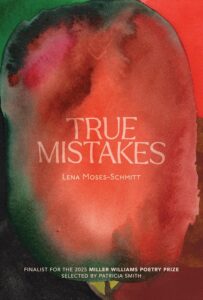
Lena Moses-Schmitt, True Mistakes
University of Arkansas Press, March 14
This striking, bruising cover sets the tone for a gorgeous, intricate, meandering and musical book of poetry by Lena Moses-Schmitt. A longtime publicist for Catapult, Moses-Schmitt has created a voice and style of her own—a steady stream of memoir-in-sketches, as well as honed and lovely poems, have been pouring out of her for years, but this is the first complete collection of hers to be published. Moses-Schmitt muses on life in all its simplicity and entangledness, wonders at it, marvels at it, and manages to make the mundane something majestic. She’s one to watch in any medium. –JH
Yuko Tsushima, tr. Lisa Hofmann-Kuroda, Wildcat Dome
FSG, March 18
This final novel from the late legend Yuko Tsushima is an epic set in post-war Japan. Following two estranged childhood friends who reconnect in the aftermath of the Fukushima nuclear explosion, this novel deals in secrets and suppressed memories, and considers the half-life of multivalent catastrophes. A last gift from the author of Territory of Light. –BA
Erika T. Wurth, The Haunting of Room 904
Flatiron, March 18
Erika T. Wurth, who wrote 2022’s splendid White Horse, is back with a wonderful, wholly inventive new horror novel, about a young woman who (following the death of her clairvoyant sister), finds herself able to commune with spirits—and is called to investigate a phenomenon in a Denver Hotel, where, every few years, a girl is found dead in the same hotel room, no matter what room she checked into. (I love this premise.) What follows is a simmering, sinister, and transportive journey through a kaleidoscopic, metaphysical and memorial world. –OR
Marcy Dermansky, Hot Air
Knopf, March 18
From the author of Hurricane Girl comes this happily madcap, devour-me-in-a-single-sitting story of “lust and money, and lust for money.” When Joanie’s old summer camp crush, now a billionaire, literally crash-lands his hot air balloon into her sub-par first date, she takes the ride–but doesn’t have to buy the ticket. (At least not at first.) If this one’s anything like Dermansky’s previous books, we can expect uproarious laughs amidst the smart social observations. –BA
Kristen Arnett, Stop Me If You’ve Heard This One
Riverhead, March 18
Kristen Arnett wrote a clown book? Kristen Arnett wrote a clown book. KRISTEN ARNETT WROTE A CLOWN BOOK! I don’t know what else you need to know. It’s going to be hilarious and gutting and delightful. –DB
Abdulrazak Gurnah, Theft
Riverhead, March 18
His first novel *after* winning the Nobel Prize for Literature, Gurnah’s Theft tells the story of three people thrown together by circumstance in modern Tanzania who must grapple with the complications—and deprivations—of a globalized world that so often treats individual lives as disposable commodities. –JD
Stuart Nadler, Rooms for Vanishing
Dutton, March 18
I’m beyond intrigued by the premise of this latest novel from 5 Under 35 honoree and author of The Inseparables Stuart Nadler. In Rooms for Vanishing, the trauma of World War II has fractured the Austrian Jewish Alterman family so that each moves through the ensuing decades alone, certain that they are the only surviving member of the family. It sounds like an epic puzzle box of a novel, exploring the profoundly destabilizing power of grief and loss. –DS
Nicole Cuffy, O Sinners!
One World, March 18
While there have been quite a few novels approaching the subject of cult indoctrination lately, Nicole Cuffy’s literary marvel stands head and shoulders above the rest. A journalist mourning the loss of his father takes a working vacation to California to interview the annoyingly attractive members of a mysterious cult that may or may not be its own religion. Meanwhile, flashbacks to the Vietnam War recount the cult’s origins. I’ll have to read this one slowly, for the language deserves to be savored and the philosophical underpinnings take some time to absorb. –MO
Stephen Graham Jones, The Buffalo Hunter Hunter
S&S/Saga Press, March 18
Sit up, everyone: Stephen Graham Jones has a new novel! It’s about the discovery of a diary written by a white Lutheran pastor in 1912—a diary which chronicles, over several visits, an interview with a Blackfeet vampire named Good Stab in which he explains his lifelong quest for revenge. –OR
Phil Hanley, Spellbound
Henry Holt, March 18
I don’t think dyslexia gets the attention it deserves, in terms of research or societal understanding—and that means it definitely isn’t showing up in our narratives. So I’m particularly excited for comedian Phil Hanley’s memoir about living with dyslexia from childhood and becoming a renowned performer despite it. There are a lot of people out there who could use more patience from the world as regards the ways in which their brains process information differently—here’s hoping Hanley helps draw some positive attention to the dyslexics. –DB
Giaae Kwon, I’ll Love You Forever: Notes from a K-Pop Fan
Henry Holt, March 18
I’ve been a fan of Kwon’s work since I read this essay in 2021 and I’m so excited for her first book! Admittedly I’m not particularly plugged into K-Pop culture, but it’s something I’m always interested to learn more about, and this book seems like a great resource to learn more about K-Pop whether you’re a seasoned fan or a newbie. Kwon writes so sincerely and vulnerably about pop culture, and I can’t wait to see what she brings to this subject. –MC
Michael Lewis, Who Is Government?: The Untold Story of Public Service
Riverhead, March 18
Lewis has recently graduated from coverage of already-huge news stories—the 2008 financial crash, the Coronavirus pandemic, the Oakland A’s being slightly less bad than usual—to covering news as it breaks, as with 2023’s Going Infinite when the book’s release coincided with the trial of its subject, convicted cryptocurrency fraudster Sam Bankman-Fried. If we expect this trend to continue, then this forthcoming collection Lewis is editing indicates that the most important subject of 2025 will be the role of the civil servant in US bureaucracy. Early signs indicate Lewis has done it again. –Calvin Kasulke, Associate Publisher
Noliwe Rooks, Integrated: How American Schools Failed Black Children
Pantheon, March 18
Brown v. Board of Education determined that racial segregation in schools was unconstitutional and was heralded as a massive victory for civil rights. But, as Rooks explains, “schools in predominantly Black neighborhoods were shuttered, lost funding, Black educators were fired, and Black children faced discrimination and violence from their white peers.” The nation’s history plays out in Rooks’ own experience with education: Rooks’ grandparents attended school during segregation, her father was one of the first students integrated into white classrooms, Rooks herself attended an underserved inner-city school, yet her son still struggles with hostility and prejudice from white teachers and students alike. Rooks questions why the story of integration is only told one way, and unpacks the ways in which the implementation of integration has done much of the Black community a disservice. –EF
Laura Delano, Unshrunk
Viking, March 18
A radical look at the mental health industry and its overwillingness to pathologize and medicate: Unshrunk promises candor and rage in lieu of therapy-speak, questioning the ease with which diagnoses and their life-altering paths are handed out to clients seeking psychological help. Laura Delano delivers a heart-rending and deeply inquisitive memoir about her psychiatric journey: the times spent in treatment centers, the vast array of pills she’s been on, the slew of diagnoses she’s been handed, and the crushing realization that she became worse off from these interventions than she’d been at the outset. What ensued was the complete disavowal of medication and psychiatry; Delano bravely reports from the other side of her decision, from an earned, embodied perspective. Delano has chosen the raw, often painful, always worth it experience of being human, and offers experience and research to readers who are curious to do the same. –JH
J. Robert Lennon, Buzz Kill
Mulholland, March 18
Whatever Lennon writes it is A) never boring B) funny. So obviously I am intrigued by the promise of his latest, a plot-rich ensemble piece featuring synthetic street drugs, disastrous deep fakes, neophyte PI’s, a “cult-like billionaire” named Travis Nutt, and much, much more. (I repeat: Travis. Nutt.) –JD
Binnie Kirshenbaum, Counting Backwards
Soho Press, March 25
Binnie Kirshenbaum novels are sharp, harrowing, and disarmingly funny at the rawest of moments. In her new novel, Addie, an artist, must reckon with her husband Leo’s dementia and his terminal diagnosis of Lewy body dementia. In short, sometimes painful and sometimes funny vignettes, Kirshenbaum captures the most important details of their final years together as well as the moments they are forced to spend apart, as Leo’s descent into cognitive decline is punctured by violence which means he must be cared for elsewhere. A true love story ends with tears, and Counting Backwards is, if boiled down to one thing, surely that. –EF
Emma Pattee, Tilt
Marysue Rucci Books/S&S, March 25
Tilt is based upon the very real risk of a massive earthquake hitting the Pacific Northwest in the next 50 years. Kathryn Schulz wrote about this very danger in 2015 for the New Yorker, and Emma Pattee expands and fictionalizes upon this terrifying possibility with Tilt. The novel starts with the pregnant protagonist shopping in an IKEA when the earthquake strikes, and she must wade through the wreckage the earthquake has wrought as she attempts to make it home to her husband. All the while, we are with her as the terror of an unknown world descends upon her, and as she grapples with the future to which she is condemning her unborn child. While it may be hard to read, as climate disaster can hit upon a specifically frightening trigger point, Tilt promises wit and style, and reminders of humanity in the face of disaster. A force to be reckoned with. –JH
Nell Zink, Sister Europe
Knopf, March 25
Get in, losers! We’re getting a new Zink. One of my favorite working satirical social realists has taken her gimlet eye over the pond this time, to her adopted home in Germany. In previous novels, Zink’s chronicled highly American families—chosen and assigned—that try to bypass a natalist/nuclear/capitalist arrangement (Doxology, Mislaid). But Sister Europe assembles a motley crew of disconnected dinner party guests to explore a whole society’s hypocrisies. Unsparingly honest on the wealthy ex-pat and the professional artist, this novel feels like a big new swing from a thrilling stylist. –BA
Ron Currie, The Savage, Noble Death of Babs Dionne
Putnam, March 25
Ron Currie doing a big family crime novel seems like a ticket to a great time to me. It features a iron-willed Franco-American matriarch (the titular Babs) defending her territory (a small town in Maine) and her family from enemies foreign and domestic. I have the feeling it’s going to come together in a big messy blast, as all good crime denouements should do. –DB
Bob the Drag Queen, Harriet Tubman: Live in Concert
Gallery Books, March 25
Yes, it’s true: that Bob the Drag Queen wrote a novel and it is about Harriet Tubman coming back to life and making a hip-hop album. You already know you’re on board, as well you should be: the novel is funny and wild and sharp, about fame and race and creativity and America. Harriet’s is a show not to be missed. –DB
Sophie Kemp, Paradise Logic
Simon & Schuster, March 25
They say never judge a book by its cover, but I think this one might be giving us some hints about its contents. Extraordinarily odd, distinct and jarring, one needs to only crack the spine to get a sense of Sophie Kemp’s voice and style. Both earnest and yet feels like a book-long joke, the narrator lives to be “the greatest girlfriend of all time,” spending money and time and energy to craft herself into this specimen worthy of adoration, even joining a clinical trial to shape herself into said elusive concept. There’s something Miranda July-esque about the whole performance, a statement on whether these desires can exist divorced from the effects of a patriarchal society, and how to understand being a girl, a girlfriend, a woman who is attracted to men, under the circumstances we’ve been handed. Offbeat, hilarious, and often dismal, Paradise Logic is the excavation of heterosexual desire our age deserves. –JH
W.G. Sebald, tr. Jo Catling, Silent Catastrophes: Essays
Random House, March 25
The only question I have is why it took so long for this book—which compiles two books of essays by W.G. Sebald, The Description of Misfortune and Strange Homeland, published in Austria in 1985 and 1991—to reach us poor English speakers. The essays in question are deep-dives on some of the writers whose work meant the most to Sebald, including Bernhard, Kafka, and Roth, and no doubt will shed a fascinating light on the genre-bending novelist’s own works. –ET
Hallie Rubenhold, Story of a Murder: The Wives, the Mistress, and Dr. Crippen
Dutton, March 25
Hallie Rubenhold writes some of the most engaging nonfiction around; her works display an incredible mastery of the rhythms of the past and the quirks of history’s denizens. Here, she explores a shocking murder in turn-of-the-century New York’s glittering demimonde—when a popular chanteuse goes missing, suspicion quickly falls upon her doctor husband, whose reputation for quackery hides far more sinister intentions. –MO
Lynne Tillman, Thrilled to Death: New and Selected Stories
Soft Skull, March 25
Lynne Tillman, somehow, is still… underrated? Truly one of our great writers, I am absolutely thrilled that Soft Skull, with editorial oversight from Tillman herself, is publishing work from across her weird and brilliant career. –JD
Amanda Knox, Free: My Search for Meaning
Grand Central, March 25
Who isn’t curious? Amanda Knox has been a name we’ve known in infamy for fifteen years now, and the quest for answers remains unsated. Notoriously charged and imprisoned for the murder of her roommate, Knox has long held fast to her innocence: she’s written another memoir before, but this one is from the specific vantage point of what freedom and life can mean after having such a cataclysmic and devastating event occur. I know that I’ll be reading this title: whenever I’ve come across writing by Knox I’ve been blown away by her wisdom and nuance, struck by the fact of such an indomitable spirit through it all. Even if it’s from an unlikely guide, I’m ready to be convinced and inspired by Knox and her quest for meaning in the face of the most harrowing event one can live through. –JH
Colum McCann, Twist
Random House, March 25
McCann’s latest novel sends an Irish journalist to cover the internet cables embedded deep under the ocean, only to find himself mired in a very human web of desire and despair. –ET
Boris Fishman, The Unwanted
Harper Books, March 25
A small family must escape their unnamed, war-tattered country in Fishman’s latest novel, fearing for their lives. Lea Carpenter described the book as “urgently contemporary and prescient in equal measure,” and added that it “channels the spectrum of literature’s finest, emotionally visceral dystopian masterworks, from Dune to The Handmaid’s Tale, in a fable of survival, resistance and, ultimately, maternal love.” –ET
APRIL
Olivie Blake, Gifted & Talented
Tor Books, April 1
You’re going to see a lot of people comping this to Succession and, in that superficial “so is King Lear” way, they’re not wrong—three siblings, imperial father, death and inheritance drama—but the real comp for this book is The Royal Tenenbaums crossed with Fleishman is in Trouble. The Wren siblings are all former prodigies now facing their less-than-prodigious thirties and all former gifted-and-talented kids will see themselves in their struggles (as outsized as their struggles might be)—but Blake has some fun tricks up her sleeve, including a cool riff on magical powers and a narrative voice to die for. Absolutely her best book yet. –DB
Geetanjali Shree, tr. Daisy Rockwell, Our City That Year
HarperVia, April 1
In 2022, Shree’s novel Tomb of Sand, also translated by Rockwell, won the International Booker Prize, making it the first novel translated from any Indian language to do so; Our City That Year, originally published in Hindi 25 years ago, sounds nonetheless very timely: a book about violence and uncertainty driven by religious difference, about a city imploding while its intellectuals wring their hands and drive themselves to distraction. –ET
Jeanne Thornton, A/S/L
Soho Press, April 1
Three 90s teens (Lilith, Sash, and Abraxa) meet on Al Gore’s internet, “and one of them dreams of computers.” This novel, from the visionary Jeanne Thornton, sets out to “queer our notion of nostalgia” via a friendship saga rendered in glimmering prose, chatroom transcripts, and the occasional diagram. The result is a BIG book—expansive, ambitious, idea-driven, and full of delightful details. And as in Thornton’s previous novel, Summer Fun, characters jump off the page. –BA
Camilla Barnes, The Usual Desire to Kill
Scribner, April 1
A daughter visiting her oddball parents reports, at the end of her visits, “the usual desire to kill” and, well, I can relate. This sounds hilarious and delightful, particularly for all of us who find that we love our parents even as we also want to send them on a rocket ship into space forever. Especially if your parents, like Miranda’s, also have llamas. –DB
Rav Grewal-Kök, The Snares
Random House, April 1
The Snares may be the most cynical take on government actions I’ve ever come across. In Rav Grewal-Kök brilliant and tragic sendoff of the post-9/11 world, a bored bureaucrat is recruited to approve suggested targets for the nascent drone program, and instead finds himself set up as the patsy for a deeply racist and bloodthirsty initiative. If Graham Greene had written a Shakespearian tragedy, it would read something like this. –MO
Ken Kalfus, A Hole in the Story
Milkweed, April 1
Ken Kalfus is my favorite writer that no one (it seems) has heard of; his latest book is “a darkly comic novel dissecting the misjudgments, hypocrisies, and occasional good motives that drive our politics and our journalism, as well as our most intimate personal relation,” which honestly might be too on the nose, but also might be just right. –ET
Nadia Terranova, tr. Ann Goldstein, The Night Trembles
Seven Stories Press, April 1
A boy and a young woman, each longing for escape, find an opportunity for freedom when a massive earthquake rocks Sicily and Calabria in 1908. Their release, from the tyrannical abuse of a mother and the impending grips of a loveless marriage, is hard-won. though, and comes at a great cost. This lyrical book from the award-winning Italian author of Farewell Ghosts is a stark examination of resilience and change. –JF
Amy Gerstler, Is This My Final Form?
Penguin Books, April 1
In this collection Gerstler works with themes of transformation, transition, and becoming, all with wit and unexpectedness. –OS
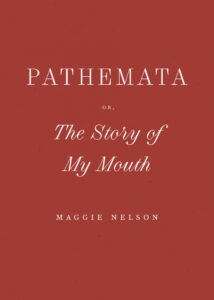
Maggie Nelson, Pathemata, Or, The Story of My Mouth
Wave Books, April 1
We have a new Maggie Nelson text! Pathemata, Or, the Story of My Mouth is an experimental pain journal based on Hervé Guibert’s The Mausoleum of Lovers about a decade spent living with severe jaw discomfort, and the thoughts, dreams, nightmares, and questions that surround the experience. This text owes much to Deleuze and Guattari’s work on the “symptom,” and Deleuze’s further work attempting to bridge literature and psychology and using a method of “symptomology” he discovered in Nietzsche. But it’s much funnier, and—I’m going to be frank with you—more enjoyable to read. –OR
Tezer Özlü, tr. Maureen Freely, Journey to the Edge of Life
Transit Books, April 1
This is the second of Özlü’s books to be posthumously translated into English, and follows a solitary, unnamed writer as she explores Europe, seeking out the graves of her favorite authors. Journey is an atmospheric and introspective travelogue from the perspective of an obsessive with a deep passion for literature; she finds herself in new cities, new lovers, and new ways to compare herself to the brightest lights in her personal literary canon. –JF
Sandy Hudson, Defund: Black Lives, Policing, and Safety for All
Pantheon, April 1
Defund isn’t just a deeply researched examination of why policing does not, in fact, improve public safety; it’s also a look at how investing in communities can achieve what policing cannot. –OS
Katie Kitamura, Audition
Riverhead, April 8
Kitamura is one of the most entrancing novelists at work today—her work consistently challenges readers to penetrate a world of gestures and presumptions to aim for a deeper understanding, only to shift terrain again and leave us with ever more questions. In her latest novel, Audition, a man and a woman sit down to lunch in a New York restaurant. Their narratives, intertwined and in fact competing, soon call into question everything we believe we know about the scenario, creating a truly uncanny and unforgettable reading experience. –DM
Lynn Steger Strong, The Float Test
Mariner, April 8
I will always be excited for a new novel from Lynn Steger Strong, who is one of our greatest chroniclers—or perhaps it is better to say unpickers—of the American family. This one is about secrets and long-held grudges and stymied artists and Florida and sisters coming together, or not, after the death of the matriarch. Can’t wait to read. –ET
Nghi Vo, Don’t Sleep with the Dead
Tordotcom, April 8
Nghi Vo’s The Chosen and the Beautiful remains the high-water mark for the flood of Gatsby adaptations that followed the book’s arrival in the public domain—so I’m incredibly excited that she’s returning to her magical version of the story, this time picking up with Nick in the 1930s. My soul is ready, my fingernail is painted black. –DB
Laurent Binet, tr. Sam Taylor, Perspective(s)
FSG, April 8
From the author of HHhH, a post-modern, epistolary murder (and art) mystery set in Renaissance Florence—which opens with a painter stabbed to death with a chisel, lying prone under his unfinished frescoes; minor investigation into his quarters shows an obscene painting—but why? I’ll read anything by Binet, but especially something like this. –ET
Joe Mungo Reed, Terrestrial History
Norton, April 8
A time-twisting family drama that starts with a fusion scientist on the coast of Scotland meeting a stranger—a stranger from her future, from Mars. This one gives me big Emily St. John Mandel and Ethan Chatangier vibes, perfect for reminding us what we’re all fighting for on this little green marble of a planet. –DB
Kevin Nguyen, My Documents
One World, April 8
In Nguyen’s second novel, four Vietnamese Americans’ lives are upended when violent attacks across America create a national panic, and a new national policy sends Vietnamese Americans to internment camps. Jen and Duncan are sent to Camp Tacoma while Ursula and Alvin receive exemptions. What follows is a near future that’s all-too-possible: in the camp, they are cut off from the outside world and the internet, but when Jen finds a way to get messages to Ursula, she sees a chance to tell the world about the horrors they face. “Finely attuned to both the brutalities and mundanities of racism,” this book promises to be both a timely read and reminiscent of this country’s not too distant past. –EF
Lucy Caldwell, These Days
Zando/SJP, April 8
Acclaimed Irish playwright and novelist Lucy Caldwell has won a trove of major awards back across the pond (including the Dylan Thomas Prize, the Walter Scott Prize, and the BBC National Short Story Award) where this, her forth novel, was published in 2022. A story of haunted love and heartbreak set during the Belfast Blitz in 1941, These Days, which the Guardian called “breathtakingly poignant,” looks set to be Caldwell’s breakout book in America. –DS
Jon Hickey, Big Chief
Simon & Schuster, April 8
Full disclosure? I’ve been anticipating this book ever since encountering Hickey’s slick, propulsive writing at a conference years ago. Following Mitch Caddo, an ambitious law grad and “the youngest ever tribal operations director for the Passage Rouge Nation of Lake Superior Ashinaabe,” this debut novel is a political thriller with teeth. On the eve of the Tribe President’s presumed reelection, chaos creeps into this community when black hats and old ghosts threaten a peaceful transition of power. Come for the winsome narration, and stay for the big ideas. –BA
Jennifer Haigh, Rabbit Moon
Little, Brown, April 8
When the young adult daughter of a couple just a few years out from a bitter divorce is hospitalized after a hit-and-run in Shanghai, where she has been teaching English, the family goes to the city to attend to her. I love novel that dives deep into betrayal, dysfunction, and family secrets, and Rabbit Moon promises to plumb the depths of all three. –JG
Kate Folk, Sky Daddy
Random House, April 8
Kate Folk has an idiosyncratic, spare style that is well suited to her truly odd, ridiculous, inexplicably poignant subject matters. Her debut novel, Sky Daddy, is the story of one woman and her desire. I should mention, that desire entails being sexually obsessed with planes. The narrator, Linda, conducts a fairly normal life: she lives in San Francisco working a mundane job, goes home to her mundane apartment, and once a month, goes to SFO to take a round trip domestic flight to fulfill her sexual yearning for aircrafts. Again, Kate Folk has an unusual eye and style, but if you buckle up, it’s one hell of a ride. –JH
Andrea Long Chu, Authority: Essays
FSG, April 8
I can’t wait to disappear into this collection of essays from one of my favorite critics, public intellectuals, and—let’s face it—haters, tackling culture in all its forms—and also, in two new essays, taking on criticism itself, and how it should (or can) be practiced today. If anyone should know, it’s Chu. –ET
Vauhini Vara, Searches: Selfhood in the Digital Age
Pantheon, April 8
Novelist and Pulitzer Prize finalist Vauhini Vara’s 2021 essay about the death of her sister is still the most (only?) convincing literary use of AI that I have read. That essay is in this book, which is a book of essays in the original sense, which is to say that it is a book of experiments, of interrogations: of the internet, of form, of possibilities, of ourselves. This is the only AI-related reading I will be doing this year. –ET
Viet Thanh Nguyen, To Save and to Destroy: Writing as an Other
Harvard University Press, April 8
This new work of nonfiction from Viet Thanh Nguyen, the Pulitzer Prize-winning author The Sympathizer and one of contemporary American fiction’s most fearless writers of conscience, is a “personal meditation on the literary forms of otherness and a bold call for expansive political solidarity.” Over the course of six essays, Thanh Nguyen explores the idea of the outsider in literature though the lens of his own experience—weaving together memoir, literary criticism, and political analysis to ask probing questions about the responsibility of the writer in a time of neo-imperialism and forever wars. –DS
Robert Garland, What to Expect When You’re Dead: An Ancient Tour of Death and the Afterlife
Princeton University Press, April 8
Thinking about death is a constant in human history, and Robert Garland’s roving book takes us way back to the misty origins of our cultural and religious obsession. What To Expect is a tour of the ancient world’s death customs: what Mesopotamians, Egyptians, and Romans thought was a good death and how they dealt with bodies; and what rituals the early Hindu, Jewish, Zoroastrian, Christian, and Islamic faiths practiced, and what they thought happened next. Your inner goth kid’s gonna want to read this one. –JF
Sayaka Murata, tr. Ginny Tapley Takemori, Vanishing World
Grove, April 15
Murata’s novels and stories are usually strange, sometimes disturbing, but always a fun-house mirror on another, perfectly imagined world. In her new book, Murata describes a near-future Japan where sex and marriage are taboo and all children are born by artificial insemination. Amane is already seen as odd because she was the product of “copulation.” When she hears about an experimental Eden, where residents are artificially inseminated en masse (including men with artificial wombs) and children are raised collectively and anonymously, she and her husband decide to try living there. Is this new world order a way for Amane to become normal? Only one way to find out. –EF
Julia Elliott, Hellions: Stories
Tin House, April 15
Jeff VanderMeer called Elliott an Angela Carter for our times, and he’s absolutely right. Elliott’s fiction blends folklore and fairy tale, reality and strangeness, the surreal and the mundane to make dazzling mobiles of oddity—and her new collection is shaping up to be her most curious to date. From medieval convents to small Southern towns, Elliott’s protagonists make her strange worlds seem vibrantly real. –DB
Seán Hewitt, Open, Heaven
Knopf, April 15
Irish poet Seán Hewitt’s much lauded debut novel is a story about first love and forbidden desire. James’ new awareness of his sexuality leaves him feeling isolated until he meets Luke, a charismatic and troubled older boy with secrets to uncover. Anne Enright has praised the book, saying the “heightened, poetic state of adolescence is perfectly captured here.” –EF
Denne Michele Norris, When the Harvest Comes
Random House, April 15
The editor-in-chief of Electric Literature makes her full-length fiction debut with a spectacular drama about a queer Black man who learns, on the day of his wedding, that his estranged father has been in a car accident. What ensues is a complicated reckoning with masculinity, family dysfunction, and the hopes we have for making better futures. Delightfully, Norris is as brilliant a novelist as she is an editor. –DB
Emily Henry, Great Big Beautiful Life
Berkeley, April 15
A new Emily Henry book! If you know, you know, and at this point, pretty much everyone knows. (Also, this one is about writers—gird yourselves.) –ET
Hanne Ørstavik, tr. Martin Aitken, stay with me
Archipelago, April 15
A successful novelist is plagued by fears seeded in her childhood, and struggles as she carries those traumas into the complexities of her adult life: marriage, loss, and writing. Told through the narrator’s life and through the life of the protagonist in her novel-in-progress, Ørstavik explores questions of identity and pain, and if stay with me is anything like her previous work, it’s not to be missed. –JF
Nettie Jones, Fish Tales
FSG, April 15
One of Toni Morrison’s last acquisitions at Random House before she devoted herself full time to writing, Jones’ short novel Fish Tales is being reissued this April by FSG after falling into obscurity. In it, 32-year-old party girl Lewis Jones floats between Detroit and Manhattan during the sexually liberated, drug-saturated, disco-blasting 1970s. A novel of desire, pleasure, drugs and sex, it’s also a story of “sexuality and race, agency and exploitation, selfhood and intimacy, sanity and self-destruction, art and the profane.” This promises to be a wild novel, and we’ll all be better for it having been rediscovered. –EF
Ishion Hutchinson, Fugitive Tilts: Essays
FSG, April 15
I have always had deep admiration for Ishion Hutchison as a poet—his language is somehow clinically precise while remaining alive and urgent—so I am excited to spend time with this essay collection, billed as “an incomplete biography of love: love of poetry, discovered in childhood; love of home, with its continual disconnections and returns; and love of the works and artists that look over him with ‘an angel’s aura,’ from Treasure Island to John Coltrane.” –JD
Dan Nadel, Crumb: A Cartoonist’s Life
Scribner, April 15
Robert Crumb is one of the most influential cartoonists of the modern era, an artist who broke comics into new terrain and spearheaded a vibrant underground comics industry. Though less widely known, Crumb’s work is as influential on American visual culture as mainstream icons like Walt Disney or Marvel’s Stan Lee. This new biography from expert Dan Nadel traces Crumb’s turbulent life and far-reaching impact, explaining not only his unique talent, but also how he clawed out the space and money to create comics that were weird, satirical, and adult against the resistance of a conservative and stolid culture. –JF
Malcolm Harris, What’s Left: Three Paths Through the Planetary Crisis
Little, Brown, April 15
Look, things aren’t great, and if our children/grandchildren have any hope of long and fulfilling lives, we’re going to have to change course quickly. So… how? For Harris, one of the more celebrated young lefty writers working today, the answer lies in some combination of progressivism, socialism, and out-and-out revolution. (Spoiler: these are the three paths, and we’re going to have to try them all.) –JD
Paul B. Preciado, Dysphoria Mundi
Graywolf, April 15
I’ll be honest: almost any book described as a “mutant text” is one I’m probably going to be interested in. If that book is written by an already-legendary trans writer and philosopher—in trans years, “legend” status can be conferred on anyone older than 45—then I’m almost certainly interested. The thesis of Dysphoria Mundi is that dysphoria isn’t a condition specific to transgender people but “the condition that defines our times.” I’m not sure how Preciado has managed to arrive at that conclusion, but I’m looking forward to finding out. –CK
Louise Glück, Ararat
FSG, April 15
To me, this is one of Glück’s most intense collections, and while I like the new cover art, I’m mostly excited for an excuse to read Ararat again. –OS
Isaac Fellman, Notes from a Regicide
Tor Books, April 15
Lambda Literary Award-winning author Isaac Fellman’s third full-length novel is a chosen family epic that defies genre; “trans sci-fi/fantasy speculative lit” is a little unwieldy, but it’s as close as we can get. Regicide is the story of Griffon Keming’s attempt to understand the lives of his adoptive parents before they met. Through reading the diaries of his father—an artist, recovering alcoholic and reluctant revolutionary—Griffon unearths the mysteries of the far-off province from which his parents hail, and the secret that propelled them to their new home.
Notes from a Regicide is one of those rare novels that stick with you long after you’ve put it down. Mark it as an early contender for the best book you’ll read in 2025. –CK
Ariana Reines, The Rose
Graywolf, April 15
Romance is in—though perhaps not yet exactly in the ways poet Ariana Reines explores it here. The book, writes Chris Kraus, “explores the contours of something essential, diving deep into pain and complexity and describing them in the most factual way. Reines explores a realm of experience with grief as its trigger. Focused, intense The Rose offers a trail that leads, if not to madness, to something that goes beyond rational sense.” –ET
Marie-Helene Bertino, Exit Zero: Stories
FSG Originals, April 22
I first encountered Bertino through her debut story collection, Safe as Houses, which is transcendent and weird and perfect, and now, how can it be that it is 12 years later that she’s finally publishing a second one? Must have been those three great novels she wrote in the meantime, huh? Fine, I guess. But in any event, I for one am excited to see her return to the short form, and will be looking very much forward to gobbling this book right up. –ET
Lydia Millet, Atavists: Stories
Norton, April 22
Lydia Millet’s new collection explores the emotional journeys of several individuals whose tales begin to collide and intersect, all guided by and interrogating the concept of “atavism,” (which is the re-emergence of a primal evolutionary trait in a non-primitive being). Characters in the modern world begin to experience urges and feelings within them that drive them to do things they know better than to do, to experience things they feel they should be able to control or rationalize. It might sound supernatural, but it’s actually very… normal? Or, should I say… human. –OR
Jo Harkin, The Pretender
Knopf, April 22
The Wars of the Roses are always ripe for story—and Jo Harkin’s turn to historical fiction looks like it’ll be catnip for Tudor/Plantagenet fanatics like myself. Following the little-known true story of a boy raised first as a humble country squire before discovering he might well be the secret heir to Richard III’s throne, it should be a ripping adventure. –DB
Sulaiman Addonia, The Seers
Coffee House Press, April 22
An intense and vibrant story about a young Eritrean refugee’s first days in London as she tries to find her way and struggles to navigate an infuriating immigration bureaucracy. But within the folds of the city and its systems, the protagonist finds ways to express herself through sex, defying a conservative society and its norms. Told in one continuous paragrah, this short, sensual book is filled with tenderness for those caught in impersonal structures, and rages with anti-colonial anger at a UK asylum system that rends apart individuals and communities. –JF
Nat Cassidy, When the Wolf Comes Home
Tor Nightfire, April 22
When FDR said “the only thing we have to fear is fear itself,” he could never have imagined someone would take that thought to so logical—and extreme—conclusion as this, and yet Cassidy’s latest works well on every level. Cassidy’s protagonist is a struggling improv comedian working graveyard shifts at the local diner and wondering how she’ll make rent. Within the first few pages, she’s transformed into the protector of a lost little boy with terrifying enemies & even more terrifying powers. The conclusion feels shattering, inevitable, and completely of our time—by which I mean, very bleak indeed. –MO
Pier Vittorio Tondelli, Separate Rooms
Zando, April 22
Read the classic novel of love and memory—first published in Italy in 1989, and only now available in the states—before it becomes a Luca Guadagnino film. –ET
Greg Grandin, America, América: A New History of the New World
Penguin Press, April 22
Greg Grandin is one of the most exciting, engaging historians working today. So I cannot wait to get my hands on his deeply ambitious, five-century history of the so-called New World that will “fundamentally change the way we think of Spanish and English colonialism, slavery and racism, and the rise of universal humanism.” –JD
Sarah Schulman, The Fantasy and Necessity of Solidarity
Thesis, April 22
The iconoclastic Schulman returns with a call to better understand collective action and solidarity—not as perfect ideals we will ever achieve, but rather as messy impossibilities we must nevertheless strive for. Using case studies of movements across the last near-century of political action, Schulman offers hope (and not a small dose of caution) for how we might, together, truly move the world forward. –DB
Bonnie Tsui, On Muscle: The Stuff That Moves Us and Why It Matters
Algonquin, April 22
Tsui’s follow-up to 2020’s magnificent love letter to water, Why We Swim, is an exploration of muscle and what it has meant to us, from ancient times to the modern age. Blending science writing, investigative journalism, and memoir, Tsui explores the role muscles play in our physical and mental health, how our obsession has come to define and distort beauty standards, and her own experience with her immigrant father’s “in-house Muscle Academy.” –DS
Sarah Aziza, The Hollow Half: A Memoir of Bodies and Borders
Catapult, April 22
I’ve been waiting for Sarah Aziza’s debut book for more than a decade. An elegant, eloquent writer whose work combines memoir with journalistic reportage about the beautiful cultures of the Middle East—and the tragic, sadistic mass dehumanization and destruction of the people, land, history, and culture of that region. In her new memoir, Aziza—a Palestinian-American writer—braids two stories of trauma and hauntings: her own story of almost dying, and her chilling reflections on the systemic annihilation of her ancestral homeland and people. A beautiful and necessary work. –OR
Lauren Haddad, Fireweed
Astra House, April 29
Set in Prince George, an industrial wasteland in Northern Canada, Fireweed follows a stifled housewife as she searches for her missing neighbor, a widow and the target of racist ire as the only indigenous woman in the neighborhood. What follows is a complex exploration of injustice, performativity, and intersectionality. –MO
A.E. Osworth, Awakened
Grand Central, April 29
Osworth is one of our best writers about the internet generation and this sophomore novel looks like it’s going to be a total romp: a coven of trans witches fighting an AI? Come on, that’s exactly what the culture needs in order to be washed clean from all the toxic nonsense of the last few years. I think this one is going to land squarely in the Charlie Jane Anders lineage—we should all be so lucky. –DB
Sophie Gilbert, Girl on Girl: How Pop Culture Turned a Generation of Women Against Themselves
Penguin Press, April 29
Pulitzer Prize finalist Sophie Gilbert’s critique of early aughts pop culture identifies the moment in the late 1990s/early 2000s “when the energy of third-wave and ‘riot grrrl’ feminism collapsed into a regressive period of hyper-objectification, sexualization, and infantilization.” We’re still feeling the effects today, and it’s likely, given everything, to get worse. Woe is me to be of an age where my youth is becoming history, but I’m still glad to have it. –ET
Craig Thompson, Ginseg Roots
Pantheon, April 29
Like many comics readers, the graphic memoir Blankets was my first encounter with Craig Thompson. Ginseng Roots, also a graphic memoir, builds upon the foundation laid out by Blankets, and of course features Thomson’s incredible artwork and use of page and frame. –OS
MAY
Paula Bomer, The Stalker
Soho Press, May 6
This is pitched as “an Untalented Mr. Ripley, a Dumb American Psycho,” which makes me laugh, and also makes me curious—how much can one loathe a literary character? Chelsea Bieker calls this an “impeccable character study of the least self-aware man on earth,” which sounds potentially maddening and also potentially hysterical. She also calls it “risky and brilliant, dark as hell and bitingly comic as only the masters can pull off,” so I’m in. –ET
Amanda Hess, Second Life: Having a Child in the Digital Age
Doubleday, May 6
In her debut memoir, New York Times critic and relentlessly sharp observer of internet culture Amanda Hess writes about the fascinating, maddening anxiety nest that is Very Online Parenting. Through the lens of her own experience of pregnancy and new motherhood, Hess creates a chronicle of the many ways in which the online world shapes and warps our experiences of child-rearing in America. Angela Garbes writes, “The honesty of Second Life took my breath away,” which is perhaps the most compelling praise for a memoir. –JG
Karen E. Bender, The Words of Dr. L: And Other Stories
Counterpoint, May 6
The latest collection from the National Book Award finalist is a collection of stories about “the ways parents and children separate at different times of life”—a topic that is, I’m sure, present for a whoooole lot of people my age. The stories range from the mundane to the extraordinary, but all of them are bound by Bender’s keen insights into that most universal (and beautiful, and frustrating) of relationships. –DB
Ngũgĩ wa Thiong’o, Decolonizing Language and Other Revolutionary Ideas
The New Press, May 6
This expansive work of historical theory takes on imperial education policies and “linguistic feudalism.” A deeply considered case for reframing how we think about native tongues, Decolonizing Language looks to be an eye-popping argument from one of our most formidable thinkers. –BA
J.M. Coetzee and Mariana Dimópulos, Speaking in Tongues
Norton, May 6
We all want to read more books in translation, but we should also consider what is the role of the translator in the books we read. Speaking in Tongues is a dialogue between Nobel Laureate J.M. Coetzee and translator Mariana Dimópulos; a discussion of the linguistic and philological questions that writers and translators constantly ask themselves. If you read Gregory Rabassa’s If This Be Treason, anything by Lawrence Venuti, or Damion Searls recent The Philosophy of Translation, this feels like the next interesting discussion on the politics of translation. –EF
Ocean Vuong, The Emperor of Gladness
Penguin Press, May 13
A May-December friendship novel from one of our great poets of the heart—following the unexpected bond formed over the course of a year between a suicidal teen and an elderly woman sliding into dementia. Have your tissues to hand, as the beauty will almost certainly bring you to tears often. What a cathartic gift! –DB
Kevin Wilson, Run for the Hills
Ecco, May 13
Ever since his debut novel The Family Fang, I’ve been a day-one Kevin Wilson reader. This latest is apparently a family road-trip novel unlike any other—newly-discovered half-siblings setting off across American in a PT Cruiser (lol) to find their other half-siblings. I’m sure it’s going to be hilarious and a little wacky and a total bundle of fun. –DB
Lincoln Michel, Metallic Realms
Atria, May 13
In Michel’s new novel, a young writer is determined to defend the legacy of a literary group that produced a sci-fi masterpiece. The story soars across galaxies but finds its emotional heft in a deft portrait of literary lives in New York and the many dramas of their mingled ambitions and disappointments. –DM
Richard Russo, Life and Art: Essays
Knopf, May 13
A new essay collection from Russo finds the author wrestling with grand notions of art and artistic lives, but as ever, he also looks at the intensely human dramas of his own family and conjures up moments of great compassion and transcendence. –DM
Ron Chernow, Mark Twain
Penguin Press, May 13
The latest in Chernow’s series of Big Biographies of Big Men is one Samuel Clemens—a literary subject at last, and I’m here for it. Give Mark Twain the Hamilton treatment! Come on, it’d be funny. –ET
Sue Prideaux, Wild Thing: A Life of Paul Gauguin
Norton, May 13
New research challenges much of what has been previously understood about Gauguin in this reconsideration of the famous Post-Impressionist painter; Sue Prideaux incorporates newly discovered and translated writing by Gauguin and his contemporaries, and even sampled one of his teeth to upend the myths about who Gauguin was. The resulting biography paints Gauguin as complicated, but not as nefarious as we may have been told. Wild Thing reveals not just an immensely influential artist, but also an anti-colonialist who resisted French injustices and championed native peoples. –JF
John Cassidy, Capitalism and Its Critics: A History: From the Industrial Revolution to AI
FSG, May 13
It’s about time we had a history of capitalism told through the eyes of its critics. For too long the predominant global system for safeguarding the power of the few against the needs of the many has been thought of like the weather: inevitable and eternal, something that cannot be changed, that can only be borne or enjoyed, depending on the day. Cassidy is more storyteller than bomb thrower, and one can only hope this gets the mainstream attention it deserves. –JD
Madeleine Thien, The Book of Records
Norton, May 20
Thien’s 2016 novel Do Not Say We Have Nothing, about three generations of Chinese revolutionaries, was the sort of epic historical story that felt so expansive you’re unsure how she kept all the plates spinning. With The Book of Records, Thien tells a father-daughter story across an even more ambitious plane—in a labyrinthine, magical building called The Sea that is made of time; characters from the past include Hannah Arendt, Spinoza, and Tang Dynasty poet Du Fu. A meditation on human migration and the role of fate in history, this is absolutely a must read. –EF
Caroline Fraser, Murderland: Crime and Bloodlust in the Time of Serial Killers
Penguin Press, May 20
Fraser’s true-crime history “transcends true-crime voyeurism and noir mythology,” exploring the lives and careers of American serial killers including Ted Bundy, the Green River Killer, the I-5 Killer, the Night Stalker, the Hillside Strangler, and even Charles Manson. But “Fraser’s Northwestern death trip begins to uncover a deeper mystery and an overlapping pattern of environmental destruction.” Is there an environmental reason why there were so many? Is there an answer as to why the murders were so weirdly senseless and nightmarishly gruesome? If she made the story of Laura Ingalls Wilder propulsive, image what she can do with serial killers… –EF
Daria Lavelle, Aftertaste
Simon & Schuster, May 20
This much-hyped new novel is a love story crossed with a kitchen fable. When Kostya Duhovny discovers that he can reunite people with their dearly departed by whipping up their favorite foods, he heads for the high-octane world of New York restaurants. But as his skills sharpen, emotional disaster looms. This is a strange, sensation-heavy book that sounds out a connection between hunger and grief. “Delicious” feels like low-hanging fruit, description-wise–but the sumptuous details paired with propulsive pacing do make the word feel apt. –BA
Elisa Levi, tr. Christina MacSweeney, That’s All I Know
Graywolf, May 20
If you know nothing else about Americans’ reading habits, you’ll be aware that even voracious U.S. readers tend to read domestic writers almost exclusively, and we consume even fewer works in translation. So when an indie press takes a risk on a translated work—and when that work is a “formally ambitious sustained monologue”—it’s an even bigger financial risk than your average book release. With that in mind, that means That’s All I Know had to knock the socks off of a lot of people to even be slated for a US release; with a press like Graywolf behind it, I’m expecting it to knock my socks off, too. –CK
Yiyun Li, Things in Nature Merely Grow
FSG, May 20
Yiyun Li begins her book with a painful fact: “There is no good way to state these facts, which must be acknowledged. My husband and I had two children and lost them both: Vincent in 2017, at sixteen, James in 2024, at nineteen. Both chose suicide, and both died not far from home.” Li’s more experimental 2019 book Where Reasons End imagines a conversation between a mother and her dead son; here, she writes more directly, “The verb that does not die is to be. Vincent was and is and will always be Vincent. James was and is and will always be James. We were and are and will always be their parents. There is no now and then, now and later, only, now and now and now and now.” Li is one of the best contemporary writers we have, this book will be dark, beautiful, and a must read. –EF
Alison Bechdel, Spent
Mariner, May 20
A new book from Alison Bechdel—which concerns the life of a cartoonist named Alison Bechdel, along with a few other characters you may recognize—is always a literary event. And I’m fairly confident that by May a comic novel is exactly what we’re all going to need. –ET
Tash Aw, The South
FSG, May 27
The summer after his grandfather’s death, Jay goes to Malaysia to see the failing farm they inherited. Jay’s father sends him to work on whatever is left of the land; he’s drawn to Chuan, son of the farm’s manager; what follows is a novel of change and desire. I loved Aw’s debut, The Harmony Silk Factory, and am looking forward to this new novel described as both “once sweeping and compressed… told with uncommon grace and beauty.” –EF
JUNE
Susan Choi, Flashlight
FSG, June 3
Alarm emoji, alarm emoji, new Susan Choi. The latest from the author of Trust Exercise considers the fallout from one fateful night: when ten-year-old Louisa is walking on the beach with her father. He disappears, but she does not. What is the truth? I’d follow Choi anywhere, so I am looking forward to finding out. –ET
Lydi Conklin, Songs of No Provenance
Catapult, June 3
An indie folk musician flees a disastrous gig and winds up teaching at a writing camp for teens in Virginia, where she’s able to interrogate her own relationship to artmaking even as she teaches art to these kids. I loved Conklin’s Rainbow Rainbow and breaking down toxic structures in our artistic practices is necessary in order to let our art flourish—so I can’t wait to see what Conklin does with the subject. –DB
Taylor Jenkins Reid, Atmosphere: A Love Story
Ballantine, June 3
Taylor Jenkins Reid wrote an astronaut novel! An 80s space-shuttle astronaut novel! Bring me the distinctly different but well-blended pleasures of For All Mankind and Kathleen Alcott’s America Was Hard to Find in a Collins glass on the rocks: I cannot wait, it’ll be the official start of summer reading. I can imagine that there might be tragedy, and there will definitely be love, and if you aren’t excited about this, then I’m so sorry that a witch stole your ability to have fun or find joy in this often-merciless existence. –DB
Lucas Schaefer, The Slip
Simon & Schuster, June 3
“For readers of Jonathan Franzen and Nathan Hill comes a haymaker of an American novel about a missing teenage boy, cases of fluid and mistaken identity, and the transformative power of boxing.” Intrigued? Of course you are, and you should be. Lucas Schaefer’s big, bold, raunchy, tender, comic, philosophical, Austin-set boxing novel is also an unflinching examination of race and sex in America. It’s absolutely bursting with memorable characters and outrageous scenes, and the sentence level writing is nothing short of superb. Truly one of the most impressive debuts I’ve read in years, The Slip is a knockout. –DS
Hélène Bessette, tr. Kate Briggs, Lili Is Crying
New Directions, June 3
Bessette’s debut, 1953 novel turned her into a cult figure in France when it came out, praised for its unique, spare style, and incisive exploration of a mother and daughter’s troubled relationship. The book has never been published in English, and her experimental and darkly funny prose will no doubt find new devotees in translation. –JF
Melissa Febos, The Dry Season: A Memoir of Pleasure in a Year Without Sex
Knopf, June 3
Can you hear that? It’s the “New Melissa Febos!!!” alarm! It’s ringing so loud! You’re running to your local library to get a copy of The Dry Season so you can read about Febos’ year of celibacy and all the things that year taught her about herself! Hurry! You don’t want to miss this delicious memoir of sensuality and desire! It’s juicy and thoughtful and lovely! The alarm is sounding! –MC
Hala Alyan, I’ll Tell You When I’m Home
Avid Reader Press, June 3
Palestinian-American writer, poet, and clinical psychologist Alyan is the author of five acclaimed poetry collections as well as the novels The Arsonist’s City and Salt Houses, the latter of which won both the Dayton Literary Peace Prize and the Arab American Book Award. Alyan’s poetry and fiction are extraordinary, and her nonfiction work is every bit as powerful and moving. In this debut memoir, Alyan’s experience of suffering multiple miscarriages, and then choosing to embark upon motherhood via surrogacy, forces her to confront her own past and the legacy of her family’s exile and displacement. –DS
Yrsa Daley-Ward, The Catch
Norton, June 3
I am a simple man of simple pleasures. I love a cold war spy thriller; I love when a narrator is an unreliable, stone-cold freak; and I love when a character who is definitely, 100% dead is suddenly, possibly alive. The Catch is based on that last premise: two sisters, whose mother has passed, are suddenly confronted with a dead ringer for their dead mother alive and well in London. The sisters disagree on whether the woman is their mom or some kind of con artist. If the premise isn’t already compelling enough, Daley-Ward is an accomplished poet and PEN/Ackerley Prize-winning memoirist, which would make this novel her hat trick. –CK
Maria Reva, Endling
Doubleday, June 3
This debut novel from Ukrainian writer Maria Reva concerns the romance tour industry—in which Westerners arrive in Ukraine looking for compliant brides. There is also a rogue scientist, two sisters working undercover to find their protestor mother, and one rare snail named Lefty. But then Russia invades, and everything changes, including the book, which takes a metafictional, even autofictional turn. Pitched as being “in the absurdist literary tradition of George Saunders and Percival Everett,” this is one I’m very much looking out for. –ET
Megan Giddings, Meet Me at the Crossroads
Amistad, June 3
In the third novel from Megan Giddings (Lakewood, The Women Could Fly), twin sisters raised by separate parents—one a believer in the new religion, the one that sprang from the mysterious portals that appeared all over the world, the other not so much—step through a door together, with unexpected results. Bring me that good literary fantasy! –ET
Sam Tanenhaus, Buckley: The Life and the Revolution That Changed America
Random House, June 3
File this under “historical opposition research.” –CK
Julian Hattem, Shelter from the Storm: How Climate Change is Creating a New Era of Migration
The New Press, June 3
Climate change is fully here and it is not just about the weather. We are only at the beginning of what will be the largest human migration in the history of the planet as extreme weather will force hundreds of millions of people to leave their homes for more habitable countries. And as Hattem’s new book reveals it is already happening at an unprecedented scale, the toll of which we are only beginning to understand. –JD
Alice Bolin, Culture Creep: Notes on the Pop Apocalypse
Mariner, June 3
At last, a new book from Alice Bolin, author of Dead Girls: Essays on Surviving an American Obsession! Culture Creep takes on the ways femininity—and personhood—intersects with contemporary culture, from diet trackers to Animal Crossing. Bolin, writes Ling Ma, “traces the rot back to its sources, looking at the ways Millennials have been indoctrinated through our cultural consumption, and more worryingly, what exactly we’ve been indoctrinated into. I can think of no higher compliment than to state that this book re-framed my entire adolescence.” Oh no, and also: oh yes. –ET
Molly Jong-Fast, How to Lose Your Mother: A Daughter’s Memoir
Picador, June 24
Molly Jong-Fast is a great writer and sharp political analyst; she’s also the only child of Erica Jong, author of the feminist autobiographical novel Fear of Flying. This is a “delicious and despairing memoir about an intense mother–daughter relationship, a sometimes chaotic upbringing with a fame-hungry parent, and how that can really mess you up.” Gossip and the devastating intensity of mother-daughter relationships? Sign me up. –EF
David Wojnarowicz, Memories That Smell Like Gasoline
Nighboat Books, June 3
Wojnarowicz’s already impressive shadow seems to have grown longer over the past few years, thanks to recent reconsiderations of his work from writers like Olivia Laing. It’s moving, if maddening, that we keep uncovering new gifts from a visionary whose life was cut short by a callow administration. This forthcoming collection of sketches and stories is one such—and represents “a disavowal of the world that wanted him dead.” –BA
adrienne maree brown, Ancestors
AK Press, June 10
AK Press continues their Black Dawn line of speculative fiction with this trilogy-ender from superstar adrienne maree brown. If Grievers was a dark “things are collapsing” novel and Maroons a cautiously optimistic “how to rebuild” novel, this promises to be a “now is the time to hope” capstone—with all the complicated cross-currents that come with such a thing. If you’ve only read brown’s non-fiction, I urge you to check out her fiction, which sings in the keys of Butler and Le Guin. Stirring stuff to rouse the spirits in these dark days. –DB
Geoff Dyer, Homework: A Memoir
FSG, June 10
A new memoir of childhood from one of our most interesting writers, author of The Last Days of Roger Federer, Out of Sheer Rage, and Yoga for People Who Can’t Be Bothered to Do It, which traces his path to a life of letters. Dyer is always interesting, and this book should be no different. –ET
Jess Walter, So Far Gone
Harper, June 10
The latest novel from the bestselling author of Beautiful Ruins is about what happens when a man who has been off the grid for years is suddenly forced back into it, and finds himself on “a madcap journey through cultural lunacy and the rubble of a life he thought he’d left behind.” Sounds like good fun to me. –ET
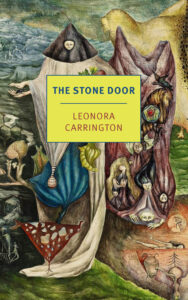 Leonora Carrington, The Stone Door
Leonora Carrington, The Stone Door
NYRB, June 17
Described as the layered intersection between an omen and an adventure story, this surrealist, folkloric novel is finally back in print thanks to NYRB. Carrington was one of the last to carry the initial flame of Surrealism, and The Stone Door is full of that artistic movement’s magic and experimentation: a young boy seeks to travel through time, open a massive door, and release his true love. A mythic and dreamy novel featuring the Zodiac, Kabbalah, and the land of the dead that any fans of wild, fantastical writing will enjoy. –JF
Jonas Hassen Khemiri, The Sisters
FSG, June 17
Khemiri’s novel is a big (600-page) family saga of the three Mikkolas sisters—their mother is a Tunisian carpet seller and their father a mysterious Swede who left them when they were young. Khemiri, who has published seven novels, said that the sisters “started speaking to him in English,” and so he wrote the novel in English—his first. (He then rewrote it in Swedish, where it’s already been published and has been a bestseller). Is the family cursed? Khemiri asks what stories we tell about ourselves, and if we can change the myth of our own identities. –EF
Dennard Dayle, How to Dodge a Cannonball
Henry Holt, June 17
Fans of short humor will know Dennard Dayle’s byline from his comedic work, and his new novel brings that sharp satirical eye to the Civil War era. His debut novel follows Anders, a white teen who joins the Union Army, only to defect, then defect again and end up in an all-Black regiment at Gettysburg. His military adventures take him all over, from New York’s draft riots to Nevada’s Native suppression, and along the way he meets soldiers, grifters, and shady arms dealers. A heightened examination of America, this funny historical novel puts Dayle’s comedic chops front and center. –JF
John Gregory Dunne, Vegas: A Memoir of a Dark Season
McNally Editions, June 17
Dunne’s account of a season spent on the Vegas Strip is a dark journey into the soul of American capitalism and it makes for just as harrowing a read fifty years after the fact. It’s deeply personal and utterly unsettling. –DM
Catherine Lacey, The Möbius Book
FSG, June 17
I’ve said it before and I’ll say it again: I’m nothing if not a Catherine Lacey stan. Her latest book is a hybrid work of fiction and nonfiction, a genre-bending work that traces her relationship with her ex partner and with her former religious faith. Lacey’s work always surprises me and offers something totally new. The Möbius Book is sure to be striking and singular. –MC
Ivy Pochoda, Ecstasy
Putnam, June 17
From the author of These Women and Sing Her Down, winner of the LA Times Book Prize, comes a modern horror retelling of a Greek tragedy, in which a woman oppressed by the men in her life finds herself lured away by a mysterious force. –ET
Megan Abbott, El Dorado Drive
Putnam, June 24
Abbott is one of the reigning queens of suspense and her latest promises to be another dark knockout, about a suburban pyramid scheme and the women wrapped up in it. I can’t wait to see what Abbott does with this slice of American capitalism and the dark things that the suburbs still hide. –DB
Wendy N Wagner, Girl in the Creek
Nightfire, June 24
Wagner, the editor-in-chief of Nightmare Magazine, delivers the eco-horror of my nightmares involving missing hikers, eerie fungi, dense forests, and a Pacific Northwest energy that absolutely screams Twin Peaks. Our climate is changing in unpredictable ways—a horror story in and of itself—but I cannot wait to see how Wagner takes those elements and puts them to chilling effect. –DB
Hal Ebbott, Among Friends
Riverhead, June 24
Some formulas just work. The comedy rule of threes. The five-act structure. A veteran criminal signing on to do one last job. Among these formulas is the kitchen-sink drama:
Step 1: Confine an ensemble of characters, all of whom have long histories with one another, in a home for a predetermined period of time.
Step 2: Add a secret.
Step 3: Reveal this secret at the worst time in the most damaging way possible.
Step 4: Shake. Serves eight.
Ebbott’s debut promises “two deeply intertwined families” spending a weekend at a house in upstate New York to celebrate someone’s birthday. How pleasant. I sure hope no one will reveal a horrible truth that disrupts their idyll along with the very foundation of their relationships! –CK
Dwyer Murphy, The House on Buzzards Bay
Viking, June 24
You can always count on CrimeReads Editor-in-Chief Dwyer Murphy for atmospheric, clever, and thoroughly engrossing novels, and I have no doubt that his latest—though the galley has not yet graced my desk—will be as good as I’ve come to expect. It concerns a group of middle-aged friends, brought back together for a reunion in the titular house on Buzzards Bay, all fun and games until one of them (the writer, of course) disappears. Then there are the mysterious break-ins in the town, the odd happenings in the house, the stranger at the door—yep, it’s a Dwyer Murphy novel, and I can’t wait to get my hands on it. –ET
André Aciman, Room on the Sea: Three Novellas
FSG, June 24
I’m always intrigued whenever an author writes in a style or format that they don’t typically attempt. A critic wrote a novel? A poet released some essays? A novelist wrote a libretto? Great, count me in. A writer trying their hand at an unusual-for-them form doesn’t guarantee that the work will be good, but it’s usually interesting, and oftentimes that’s enough. Aciman’s long and varied career means there isn’t much he hasn’t done and done well, but this appears to be his first novella collection(?), and for that reason alone I’m on board. –CK
JULY AND BEYOND
Benedict Nguyễn, Hot Girls With Balls
Catapult, July 1
I’m always a sucker for a good gonzo satire and this one sounds truly delightful: two trans volleyball players, off-court romance and on-court rivalry, interrogations of celebrity and sports and gender… It looks funny as hell and willing to burn it all down, which we frankly need more of in our literature. –DB
Maris Kreizman, I Want to Burn This Place Down: Essays
Ecco, July 1
Full disclosure: Maris Kreizman is a columnist at this website and I love working with her. She is principled, willing to speak truth to power, and uses her years of experience in the publishing industry to highlight its absurdities and hypocrisies while also celebrating the work of so many of its workers. AND she has a sense of humor. (NB: these things don’t always go together). So am I thrilled that she has a full-blown essay collection coming out that will, among other things, demonstrate to readers “that it’s never too late to become radicalized.” A-fucking-men. –JD
Sophie Elmhirst, A Marriage at Sea
Riverhead, July 8
If the Titan explosion and the Suez Canal obstruction by the Ever Given have taught us anything, it’s that people love seafaring drama. A Marriage at Sea is the true story of a married couple who leave everything behind to sail around the world and succeed for nearly a year before their boat sinks. The couple is then stranded together on a rubber raft. Rescue is improbable. This goes on for months. Months! Nautical drama, martial tensions—have you clicked away to pre-order the book already? –CK
Gary Shteyngart, Vera, or Faith
Random House, July 8
Shteyngart’s new novel, his first since 2021’s Our Country Friends, is the story of a very volatile family in a very volatile America, filtered through the eyes of a child, who just wants to be loved (the most Shteyngartian of motivations, and the most human). “In its swirls of emotion, its humor, its pathos, and the unsparing humanity of its vision, Vera, or Faith is like some fabulous, hitherto-unknown creature that’s been let out of its bottle and set free,” remarks Michael Cunningham. Sounds about right. –ET
Hannah Pittard, If You Love It, Let It Kill You
Henry Holt, July 15
Did you read the dishy NY Mag story about those four writers whose relationships all exploded? Of course you did. You’ve maybe even read Hannah Pittard’s viral essay in the Sewanee Review, the one that turned into her memoir-of-sorts, We Are Too Many. Now, she turns a fictional eye towards the aftermath of all of that, following a Hana P in Lexington KY going through a mid-life crisis after finding out her ex is publishing a novel with a none-too-flattering version of her in it. I can’t wait. –DB
Ben Brooks, The Greatest Possible Good
Avid Reader Press, July 15
You’ll not forget the Candlewicks once you meet them! This splendid, wry satire is about a wealthy family, self-important and confident in their morality, whose blithe and bumptious existences are thrown into disarray when their father clandestinely decides to give all their money to charity, and so (in their opinions) completely destroys their lives. Droll and all-too-real. –OR
Katie Yee, Maggie; or, A Man and a Woman Walk Into a Bar
Summit Books, July 22
Katie Yee is a brilliant young writer whose debut novel, despite not being out for another seven months, is already generating a ton of buzz. I was fortunate enough to be a colleague of Katie’s once upon a time and so, when I heard that she had written a complex, razor-sharp, romantic tragicomedy (about a woman who discovers her husband is having an affair around the same time she discovers that she has cancer), “in the style of Jenny Offill and the tradition of Nora Ephron,” I was not one bit surprised. –DS
Tehila Hakimi, Hunting in America
Viking, July 22
Tehila Hakimi delivers a concise, haunting novel about a woman who relocates from Israel to America for her corporate job, and amidst the mundanity and drudgery of her life, takes up an obsession with hunting. Addicted to the rush of her newfound hobby, lines begin to blur: what it means to be predator and what it means to be prey becomes nebulous and hazy, her day to day life loses its importance, and all the while her fixations narrow, focus, and take aim. Slim, serious, and searching, Hunting in America revolves around some major topics right now: the experience of our inter-country relations, gun usage in our country, and the vacuous void at the center of one’s quest for power and meaning in America. –JH
Daniel Saldaña París, tr. Christina MacSweeney, The Dance and the Fire
Catapult, July 29
In Saldaña Paris’s ambitious new novel, three friends return to Cuernavaca, Mexico, a city on fire—wild fires and, soon enough, a kind of hysterical dancing compulsion overcoming the population. –DM
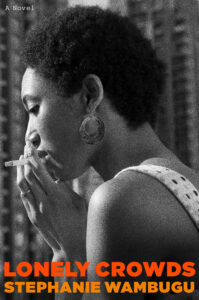 Stephanie Wambugu, Lonely Crowds
Stephanie Wambugu, Lonely Crowds
Little, Brown, July 29
This novel follows two friends, Ruth and Maria, over the course of a twisty, decades-long relationship. The pair of outsiders initially bond over being the rare scholarship students at their chilly New England Catholic school. When they both wind up pursuing art dreams in New York, competition tests their bond.
This much-hyped debut from a young writer-to-watch enters one of my favorite canons (buds-in-the-city-books) and is set in one of my favorite milieus (a 90s New York art world). Call me seated. –BA
Ed Park, An Oral History of Atlantis: Stories
Random House, July 29
The long wait between Personal Days and Same Bed, Different Dreams is a thing of the past—here comes another Ed Park joint, this time a story collection! Park was a Pulitzer finalist for Same Bed and he brings that same genre-bending, polyphonic style to this collection of stories about modern life and all its perfectly mundane strangeness. –DB
Rax King, Sloppy: Or: Doing It All Wrong
Vintage, July 29
King is an excellent essayist and critic, and her work is never boring or stale: anyone who’s read her at MEL, Welcome To Hell World, or in her previous collection Tacky knows how funny and sharp her writing is. Her new collection of personal essays takes on bad behavior by looking inward, with examinations of sobriety, waiting tables, Neopets forums, and shoplifting from Brandy Melville. King has a blogger’s punch and an essayist’s analysis—her dexterous writing is intelligent, observant, and very, very funny. –JF
Mattie Lubchansky, Simplicity
Pantheon, July 29
Where Mattie Lubchansky’s remarkable debut graphic novel Boy’s Weekend followed its trans protagonist’s attempt to navigate a bachelor party in a speculative near-future, Simplicity finds us a bit further into a dystopian-ish setting. Lucius Pasternak, a municipal employee of the New York City Administrative and Security Territory, is dispatched to study the people of Simplicity, an upstate utopian commune settled over a century ago, back in the 1970s.
While living among the residents of Simplicity, the uptight Pasternak struggles to adapt to the commune’s highly liberated attitudes towards sex and nudity; to further complicate matters, someone—or something—is hunting the people of Simplicity. Lubchansky’s sophomore graphic novel explores the limits of utopian separatism, the downsides to trying to work against an oppressive system from the inside, and how communities can defend themselves and win. –CK
Xenobe Purvis, The Hounding
Henry Holt, August 5
You had me at “The Crucible meets The Virgin Suicides.” Add, perhaps, “meets Nightbitch,” considering the main complaint that the residents of Little Nettlebed have about the Mansfield sisters is that they are maybe, probably, definitely turning into dogs. I’m game. –ET
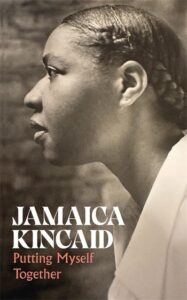 Jamaica Kincaid, Putting Myself Together: Writing 1973—
Jamaica Kincaid, Putting Myself Together: Writing 1973—
FSG, August 5
Jamaica Kincaid has been good company this year. I reread Annie John and marveled at how much raw truth she was able to pack into that slim little book. In this compendium collection, which includes pieces Kincaid published in The New Yorker and The Village Voice over her long career, completist fans fond of insight can enjoy some of her more penetrating essays. –BA
Chloé Caldwell, Trying: A Memoir
Graywolf, August 5
Chloé Caldwell’s cult classic novel Women was one of the best books I read last year, so I’m really looking forward to her new memoir. Trying is a memoir about family, marriage, queerness, and starting over. It’s about trying to have a child, but it’s also about trying to find fulfillment and live a life. This book is sure to be filled with Caldwell’s distinct sense of humor and her precise, honest observations about the world. –MC
Josephine Rowe, Little World
Transit Books, August 12
Josephine Rowe is a remarkable writer, able to capture entire lives in a few paragraphs, creating characters so immediately recognizable, so deeply knowable, that you feel like they’re surely going on with their daily rituals, their heartbreaks and revelations, even after you’ve closed the book. Little World is perhaps her most structurally ambitious work to date, as it follows the unlikely remains of a South American child saint across thousands of miles and many generations, introducing us to all the beautiful, imperfect lives that cross her path, in what is billed as “a haunting reflection on violence and the interdependency of all things.” A must-read. –JD
Jessica Francis Kane, Fonseca
Penguin Press, August 12
Kane’s latest novel is about a real episode in the life of the writer Penelope Fitzgerald, who left her husband and youngest child at home and traveled, pregnant, with her six-year-old in tow, to northern Mexico to try to secure an inheritance. But as with all things concerning silver mines, it’s not that simple. As a fan of both Kane and Fitzgerald, I’m looking forward to this one. –ET
Tom Comitta, Patchwork
Coffee House Press, August 19
Tom Comitta, author of the, well, patchworky opus The Nature Book, is back with a new endeavor: a story about stories, made up of stories. And if this sounds simple and self-explanatory… read what I just said again. Committa has written a book that combines every writer and every book, but by isolating and exploring the elements that stories fundamentally share with one another. –OR
Mark Doten, Whites: Stories
Graywolf, August 19
The first story collection from one of our great contemporary satirical novelists—I’m almost afraid to see what they’re going to do with the short form, but I’m sure it will be lacerating—all the hyper-contemporary tales here are narrated by various white people who “are united by a ferocious belief in themselves, certain that everything they’ve done can be justified, if you’ll just hear them out”—and brilliant. –ET
Charlie Jane Anders, Lessons in Magic and Disaster
Tor Books, August 19
All the Birds in the Sky is one of the towering instant-classics of 21st Century SFF and I’m so excited for Anders to return to adult fiction (after a terrific YA space opera trilogy). This one, about a witch who teaches her mother magic (and uncovers some dark secrets in the process), should be a total delight for the late summer, one-more-book-before-back-to-school days. –DB
Melissa Pace, The Once and Future Me
Henry Holt, August 19
This book will blow your mind!!!! It kind of felt like a Marvel movie, but like, one that’s actually good! Pace’s amnesiac heroine, locked up in a mental institution and subjected to strange experimental procedures, must escape her padded prison and find out what exactly she’s forgotten, and what role her husband has played in all this, well, madness. I cannot tell you more without spoilers, but even as someone who reads 150+ books a year, I was genuinely surprised. –MO
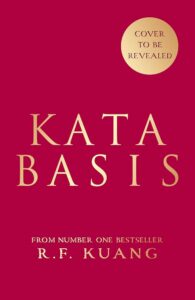 R.F. Kuang, Katabasis
R.F. Kuang, Katabasis
HarperCollins, August 26
Between Babel and Yellowface, I’m hard-pressed to find a reader who doesn’t know Kuang but I think that rare breed will truly go extinct with the sure-to-be-immense release of her latest book this summer. Dark academia, rival academics, a descent into the underworld… yeah, I’m already impatiently waiting to read it. –DB
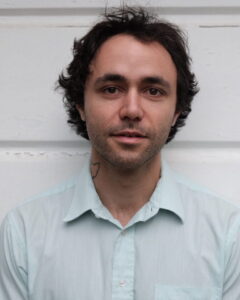 Jordan Castro, Muscle Man
Jordan Castro, Muscle Man
Catapult, September 16
The false dichotomy between gym rat and bookworm has stood for far too long. Castro’s sophomore novel, which follows a day in the life of a weightlifting-obsessed English professor “as paranoia slowly transforms his mundane environment into something more foreboding” promises to finally to reveal the truth: that you can be a jock and a nerd at the same time and, if you work hard and persevere, you, too can override the positive mental health effects of working out through the sheer force of neuroticism. –CK
 Angela Flournoy, The Wilderness
Angela Flournoy, The Wilderness
Mariner, September 16
I’m a huge admirer of Angela Flournoy’s writing and was thrilled to read that a new novel (the follow up to her 2015 debut, The Turner House, which was a deserved finalist for the National Book Award) was on the horizon. The Wilderness—one half of a reported two-book, seven-figure deal—follows four Black women over the course of two decades of friendship, examining “how gender expectations, race, class and the shifting dynamics of city life” make their mark on them. –DS

Susan Orlean, Joy Ride
Avid Reader Press, September 23
Relatively little is known about this title as of today, but the fact that Susan Orleans, author of some of the most insightful nonfiction in contemporary letters, has written a memoir publishing later this year has me eagerly awaiting all news and ready to begin reading as soon as possible. –DM
Adam Morgan, A Danger to the Minds of Young Girls
Atria/One Signal Publishers, September 30
A book covering the historical precedent for detractors labeling any publication of sexual or queer-related content “obscene” is going to be extraordinarily relevant in 2025, and that’s probably the more sensible reason to be excited for A Danger to the Minds of Young Girls. What can’t be overstated, however, is the implication that Ulysses is a form of forbidden chick lit. Looking forward to this book forever changing the reputation of Ulysses to that effect, and elevating the story of one of its earliest proponents. –CK
 Mona Awad, We Love You Bunny
Mona Awad, We Love You Bunny
S&S/Marysue Rucci September
Lovers of Mona Awad’s cult 2019 novel Bunny rejoice—a follow-up is coming this fall. Described as both “a prequel and a sequel,” and also an “unabashedly wild and totally complete standalone novel,” it is sure to cast some much-needed magic for old and new fans alike. –ET

Arundhati Roy, Mother Mary Comes to Me
Scribner, September
The first memoir from the Booker Prize-winning author of The God of Small Things (and fearless, firebrand activist) will focus on Roy’s complex relationship with her late mother, who died in 2022. “I have been writing this book all my life,” Roy said of the upcoming memoir. “Perhaps a mother like mine deserved a writer like me as a daughter. Equally, perhaps a writer like me deserved a mother like her. Even more than a daughter mourning the passing of her mother, I mourn her as a writer who has lost her most enthralling subject.” –DS
Julia Ioffe, Motherland: A Feminist History of Modern Russia, from Revolution to Autocracy
Ecco, October 21
I can’t wait to dive into Julia Ioffe’s Motherland, which promises to capture the complexity and intersectionality of Russian women’s experiences in a novel and engaging way. –MO
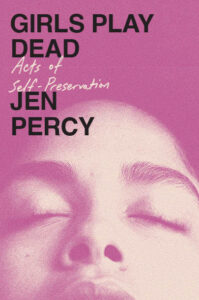
Jen Percy, Girls Play Dead: Acts of Self-Preservation
Doubleday, November
Jen Percy’s reporting about war, trauma, addiction, and extremism is some of the best around. Her 2016 piece about the loved ones of those lost in Japan’s tsunami who continue to search for them at sea is one of the most profoundly moving pieces of writing about grief I’ve ever encountered. I’m anxiously awaiting her second book, on passivity and women’s survival strategies. –JG
 Quan Barry, The Unveiling
Quan Barry, The Unveiling
Grove, Fall
Quan Barry, it seems, can do just about anything—and for her next feat: a literary horror novel, complete with penguins. The protagonist is a Black location scout named Striker, who finds herself trapped on a remote island in the Antarctic with a bunch of white tourists, battling the landscape and their own creeping madness. Yes please! –ET









